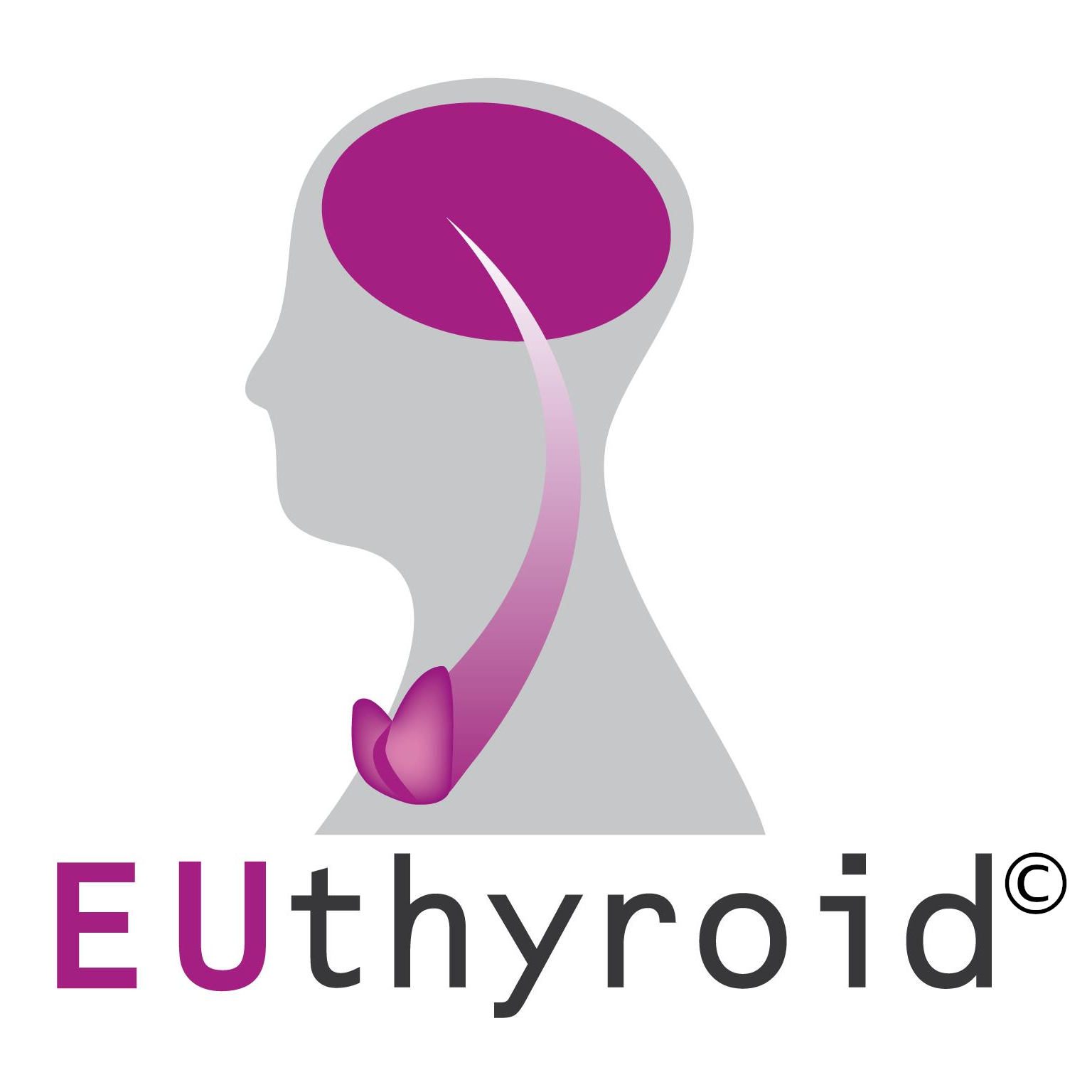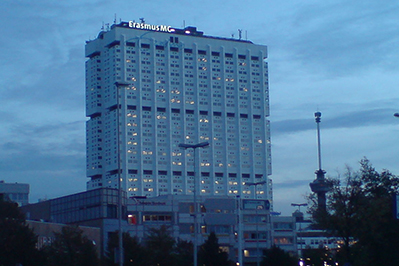Within EUthyroid 31 partners from 27 countries pool the expertise of renowned epidemiologists, endocrinologists, nutritionists and health economists. Additionally it includes the Iodine Global Network (IGN), which is engaged in overcoming iodine deficiency with 100 regional and national co-ordinators and partners agencies. Both networks overlap significantly, which should support appropriate measures, established within EUthyroid, which will be implemented by national health authorities.
22 Member States of the EU participate in EUthyroid as partner, corresponding to 94% of the Union’s population and in addition five countries from the IGN West Central Europe group are involved (Iceland, Israel, Macedonia, Norway and Switzerland).
If you are looking for a partner in your country please use the search tool below.

PARTNER OVERVIEW


University Medicine Greifswald
The University Medicine Greifswald (UMG) emerged from the adjacent Greifswald University Hospital and the former Faculty of Medicine of the Ernst Moritz Arndt University Greifswald as an independently operating public entity in 2010. Throughout the past two decades, the emphasis of both the Medical School and the Hospital, has been the consolidation of community-based medical care and research. UMG is comprised of 21 clinical departments and 19 institutes, and admits over 200 medical and dental students annually.
The Institute for Community Medicine was founded as a result of the newly-formed effort on community-based medicine in the 1990s and has developed into the largest non-clinical department at UMG. Based on its breakthrough research in the area of population-based research and demographic change-driven models of health care utilisation of the future, numerous manuscripts and national policy changes have been made. Divided into four departments, the institute covers: Methods in Community Medicine, the Epidemiology of Health Care and Community Health, Family Medicine and the Study of Health in Promenia (SHIP)-Clinical-Epidemiological Research.
The Department of SHIP/Clinical Epidemiological Research hosts one of the most comprehensive population-based cohort studies worldwide, the Study of Health in Pomerania (SHIP). The main task of the Department is to continue to use and to extend the comprehensive and high quality data collection of SHIP as the major basis for projects within the Research Network of Community Medicine. Based on the extensive experience in standardised data acquisition and analysis, the department contributes to additional large-scale projects in clinical and population-based epidemiology.
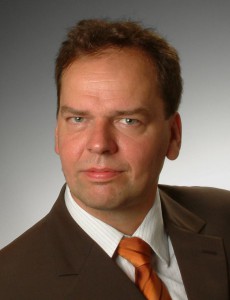
© UMG Hausmann
Prof. Henry Völzke, MD
Henry Völzke has been working as an epidemiologist for nearly 15 years and is the Head of the Department of SHIP/Clinical Epidemiological Research. As Principal Investigator, Völzke runs several large-scale observational studies in the general population and clinical settings including the SHIP and the northeastern part of Germany National Cohort. In addition, Völzke is co-Principal Investigator of GANI_MED and CARDIO-PREVENT; he also contributes to the EU funded BiomarCare project. Furthermore, he has collected expert knowledge in how to manage highly collaborative research. Völzke has also gained insight into the management structures of other projects (Gutenberg Health Study, CARLA, UK Biobank) as a member of the scientific advisory board and as the current president of the German Society for Epidemiology.
Role in EUthyroid
Within EUthyroid, as a Regional Manager, UMG has access to national registries, therefore it will contribute to the collection of data from national registries and establishment of a joint database (WP1). In addition, UMG will be primarily involved in the harmonisation of national thyroid and IDD monitoring studies (WP2). UMG will also establish an open source training program in order to harmonise studies globally. As EUthyroid coordinator it will also form an integral part of the Project Management (WP7).
Völzke H, Schmidt CO, Baumeister SE, Ittermann T, Fung G, Krafczyk-Korth J, Hoffmann W, Schwab M, Meyer zu Schwabedissen HE, Dörr M, Felix SB, Lieb W, Kroemer HK. Personalized cardiovascular medicine: concepts and methodological considerations. Nature Rev Cardiol. 2013;10: 308 – 313.
Meisinger C, Ittermann T, Wallaschofski H, Heier M, Below T, Kramer A, Döring A, Nauck M, Völzke H. Geographic variations in the frequency of thyroid disorders and thyroid peroxidase antibodies in persons without former thyroid disease in Germany. Eur J Endocrinol. 2012;167: 363 – 371.
Ittermann T, Thamm M, Wallaschofski H, Rettig R, Völzke H. Serum thyroid-stimulating hormone levels are associated with blood pressure in children and adolescents. J Clin Endocrinol Metab. 2012;97: 828 – 834.
Teumer A, Rawal R, Homuth G, Ernst F, Heier M, Evert M, Dombrovski F, Völker U, Nauck M, Radke D, Ittermann T, Biffar R, Döring A, Gieger C, Klopp N, Wichmann HE, Wallaschofski H, Meisinger C, Völzke H. Genome-wide association study identifies four genetic loci associated with thyroid volume and goiter risk. Am J Hum Genetics. 2011;88: 664 – 673.
Völzke H, Alte D, Schmidt CO, Radke D, Lorbeer R, Friedrich N, Aumann N, Lau K, Piontek M, Born G, Havemann C, Ittermann T, Schipf S, Haring R, Baumeister SE, Wallaschofski H, Nauck M, Frick S, Arnold A, Jünger M, Mayerle J, Kraft M, Lerch MM, Dörr M, Reffelmann T, Empen K, Felix SB, Obst A, Koch B, Gläser S, Ewert R, Fietze I, Penzel T, Dören M, Rathmann W, Haerting J, Hannemann M, Röpcke J, Schminke U, Jürgens C, Tost F, Rettig R, Kors JA, Ungerer S, Hegenscheid K, Kühn JP, Kühn J, Hosten N, Puls R, Henke J, Gloger O, Teumer A, Homuth G, Völker U, Schwahn C, Holtfreter B, Polzer I, Kohlmann T, Grabe HJ, Rosskopf D, Kroemer HK, Kocher T, Biffar R, John U, Hoffmann W. Cohort profile: Study of Health in Pomerania. Int J Epidemiol. 2011;40: 294 – 307.
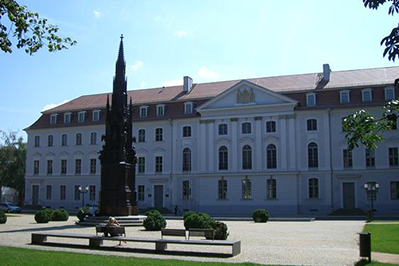
© Wikimedia Commons
CONTACT INFO:
University Medicine Greifswald
Fleischmannstraße 8, 17475 Greifswald, Germany
Prof. Henry Völzke, MD
Function: EUthyroid Coordinator, Principal Investigator, Regional Manager, WP Leader 7
Email: Henry.Voelzke@nullmed.uni-greifswald.de
Phone: +49 3834 86 75 41


National Institute for Health and Welfare
The National Institute for Health and Welfare (THL) is the biggest expert organisation under the Ministry of Social Affairs and Health of Finland. THL emerged from the National Public Health Institute and the National Research and Development Centre for Welfare and Health in 2009. THL consists of five main departments: Welfare, Health, Infectious Diseases, Health Protection, Health and Social.
The Genomics and Biomarker Unit is a laboratory unit engaged in clinical chemistry and biomarker related research. The main focus is on cardiovascular, diabetes and thyroid related biomarkers, as well as nutritional biomarkers such as iodine. The laboratory has served as a central laboratory in a number of population studies funded by the EU and the NIH. The laboratory is accredited by FINAS (SFS-EN ISO/IEC 17025). It has been a laboratory partner in over 100 domestic and international collaborative research projects.
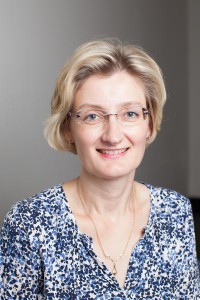
© Stefanie Freynschlag
Iris Erlund, PhD
Iris Erlund has been leading the Biomarkers group at THL since 2009. Under her leadership the laboratory has grown to become a high-throughput lab with an emphasis on quality aspects. Currently, Erlund is the principal investigator of the TEDDY Dietary Biomarkers Lab. During the past two years her group has successfully analysed thousands of biomarkers and samples from TEDDY. Furthermore, Erlund is responsible for the analysis of iodine related biomarkers in several Nordic population surveys involving children, pregnant women and adults. Erlund is a member of the Iodine Working Group of the Nutrition Council of Finland, and has worked actively to improve the iodine status of the Finnish population.
Role in EUthyroid
Within EUthyroid, as a Regional Manager, THL has access to national registries; therefore it will contribute to the collection of data from national registries and the establishment of a joint database (WP1). In addition, THL will serve as a central laboratory in EUthyroid. The laboratory will analyse thyroid hormones and antibodies from serum samples as well as iodine from urine samples. The results will be used to standardise laboratory measurements in approximately 24 studies conducted in Europe, involving adult, pregnant and child populations (WP2).
Alfthan G and Sundvall J. Blood samples and laboratory analyses. In EHES manual. Part A. Planning and preparation of the surveys. Tolonen H., editor. National Institute for Health and Welfare, 2013. Helsinki.
Alfthan G, Tolonen H, Lund L, Sundvall J. 5.5 Laboratory instructions for blood samples. In EHES Manual. Part B. Fieldwork procedures. Tolonen H, editor. National Institute for Health and Welfare, 2013, Helsinki.
Erlund I. Iodine intake in Finland – who needs to worry? Finnish. Bolus 1/2014, s. 6-7.
Langén VL, Niiranen TJ, Mäki J, Sundvall J, Jula AM. Thyroid-stimulating hormone reference range and factors affecting it in a nationwide random sample. Clin Chem Lab Med. 2014 Jun 20.
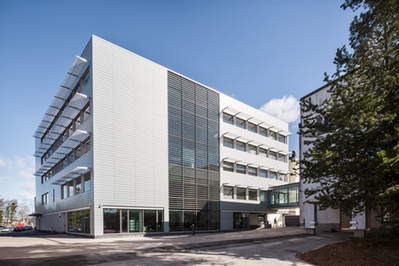
© The National Institute for Health and Welfare
CONTACT INFO:
National Institute for Health and Welfare
Mannerheimintie 166, 00271 Helsinki, Finland
Dr. Iris Erlund
Function: Principal Investigator, Regional Manager, WP Leader 2
Email: iris.erlund@nullthl.fi
Phone: 00 358 29 524 8466


Iodine Global Network (formerly ICCIDD Global Network)
The Iodine Global Network (IGN) (formerly International Council for the Control of Iodine Deficiency Disorders Global Network) is a non-profit, non-governmental organisation for the sustainable elimination of iodine deficiency worldwide. The IGN has served as the official technical advisory group on Iodine Deficiency Disorders (IDD) to WHO and UNICEF for the past 25 years, and it maintains an extensive network of contacts with patient groups, policy makers and healthcare officials throughout Europe and worldwide. The IGN focuses on universal salt iodisation as the most cost-effective and sustainable solution for prevention of IDD. Furthermore, the network advocates for political will and increased attention and resources for iodine programmes in the context of the broader global nutrition landscape. It identifies and helps address challenges to iodine programmes and thereby accelerates progress towards sustained IDD elimination.

© Stefanie Freynschlag
Prof. John H. Lazarus, MD
John H. Lazarus is emeritus professor of clinical endocrinology with 40 years of experience in clinical, research and teaching aspects of thyroidology. He is the IGN Regional Coordinator for West and Central Europe and a member of the IGN Management Council. He has more than 230 publications listed on PubMed and serves on the editorial boards of several endocrine journals. Within the EUthyroid project, Prof. Lazarus will be involved on a voluntary basis.
Role in EUthyroid
IGN’s mission is to be the authoritative voice for iodine nutrition, therefore it fulfils its mission by supporting the harmonisation of national and international iodine programme delivery through the alignment of approaches, partnerships and resources. Within EUthyroid, IGN will be responsible for the worldwide dissemination of results and data acquired during the EUthyroid project to key policy makers (WP6).
Lazarus JH, Brown RS, Daumerie C, Hubalewska-Dydejczyk A, Negro R, Vaidya B. 2014 European Thyroid Association Guidelines for the Management of Subclinical Hypothyroidism in Pregnancy and in Children. Eur Thyroid J. 2014;3:76-94.
Taylor PN, Minassian C, Rehman A, Iqbal A, Draman MS, Hamilton W, Dunlop D, Robinson A, Vaidya B, Lazarus JH, Thomas S, Dayan CM, Okosieme OE. TSH levels and risk of miscarriage in women on long-term levothyroxine: a community based study. J Clin Endocrinol Metab. 2014 online.
Bestwick JP, John R, Maina A, Guaraldo V, Joomun M, Wald NJ, Lazarus JH. Thyroid Stimulating Hormone and Free Thyroxine in Pregnancy: Expressing Concentrations as Multiples of the Median (MoM). Clinica Chimica Acta V. 2014;430:33–37.
Hamilton A, Newby PR, Carr-Smith JD, Disanto G, Allahabadia A, Armitage M, Brix TH, Chatterjee K, Connell JM, Hegedus L, Hunt PJ, Lazarus JH, Pearce SH, Robinson BG, Taylor JC, Vaidya B, Wass JA, Wiersinga WM, Weetman AP, Ramagopalan S, Franklyn JA, Gough SC, Simmonds MJ. Impact of month of birth on the development of autoimmune thyroid disease in the UK and Europe. J Clin Endocrinol Metab. 2014;jc20141270.
Taylor PN, Okosieme OE, Dayan CM, Lazarus JH. Impact of iodine supplementation in mild-to-moderate iodine deficiency: systematic review and meta-analysis. Eur J Endocrinol. 2013;170:R1-R15.

CONTACT INFO:
Iodine Global Network (formerly ICCIDD Global Network)
375 des Épinettes, K1E 3E0 Ottawa, Ontario, Canada
Prof. John H. Lazarus, MD
Function: Principal Investigator, WP Leader 6
Email: lazarus@nullcardiff.ac.uk
Phone: 00 44 2920 755428


University of Patras
The University of Patras (UPATRAS) was founded 50 years ago. UPATRAS includes 5 Schools: Sciences, Engineering, Business Administration and Medicine. The Medical School and the Division of Endocrinology were established in 1983. The first director, Prof. Vagenakis, was a well known thyrodologist and since then the research and clinical activities of the department have focused on thyroid disorders. Methodologies like Confocal Microscopy, Epifluorescence Microscopy, 3D reconstruction, Fluorescence Recovery After Photobleaching (FRAP), Fluorescence Loss in Photobleaching (FLIP), Förster Resonance Energy Transfer (FRET) are supported.
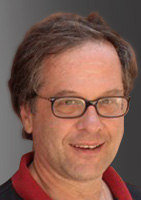
© University of Patras/CC-BY-4.0
Prof. Kostas B. Markou, MD
Kostas B. Markou is an endocrinologist and has worked in the Dep. of Internal Medicine/Dep. of Endocrinology at the University Hospital of Patras Medical School since 1989. His main clinical and research interest is thyroidology and in particular the role of iodine in thyroid physiology and pathology. He has long standing clinical and teaching experience on thyroid endocrinopathies. He is a founding member and team leader of the Programme for the Study and Eradication of Iodine Deficiency in Azerbaijan, Uzbekistan and Georgia, organised by “Iodaction group” under the auspices of the University of Patras, the Ministry of External Affairs and the Ministry of Education. His research interests focus on the same subjects and he has presented and published a significant number of scientific papers. He is the Greek Representative of the Iodine Global Network (IGN, formerly International Council for the Control of Iodine Deficiency Disorders Global Network, ICCIDD).
Role in EUthyroid
Within EUthyroid, as a Regional Manager, UPATRAS has access to national registries; therefore it will contribute to the collection of data from national registries and establishment of a joint database (WP1). In addition, UPATRAS is already running a national survey on the iodine status in pregnancy (WP2). Furthermore, UPATRAS will be involved in the development and validation of dry blood spot (DBS) thyrogrobulin (Tg) as a novel functional biomarker and in the application of the reference range for Tg to biosamples from pregnant women (WP3).
Koukkou E, Kravaritis S, Mamali I, Markantes GG, Michalaki M, Adonakis GG, Georgopoulos NA, Markou KB. No increase in renal iodine excretion during pregnancy: a telling comparison between pregnant women and their spouses. Hormones (Athens). 2014;13(3):375-81.
Michalaki M, Volonakis S, Mamali I, Kalfarentzos F, Vagenakis AG, Markou KB. Dietary Iodine Absorption is not Influenced by Malabsorptive Bariatric Surgery. Obes Surg. 2014.
Michalaki M, Pylioti A, Loutas V, Mamali I, Markou KB. Absence of differences in urinary iodine excretion and thyroid function tests in operating room staff members using or not using iodine-containing antiseptic solutions. Thyroid. 2013;23(12):1659-60.
Markou KB, Koukkou EG. The Greek population is iodine sufficient and not at risk of iodine-induced hyperthyroidism. J Nutr. 2012;142(8):1611.
Pearce EN, Alexiou M, Koukkou E, Braverman LE, He X, Ilias I, Alevizaki M, Markou KB. Perchlorate and thiocyanate exposure and thyroid function in first-trimester pregnant women from Greece. Clin Endocrinol (Oxf). 2012;77(3):471-4.
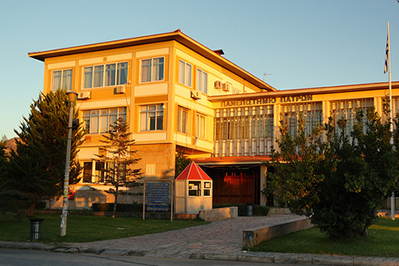
© University of Patras/CC-BY-4.0
CONTACT INFO:
University of Patras
University Campus Rio Patras, 26500 Rio Patras, Greece
Prof. Kostas B. Markou, MD
Function: Principal Investigator, Regional Manager
Email: markoukonst@nullupatras.gr
Phone: 00 30 2610 999732


Erasmus Medical Centre Rotterdam
Erasmus MC (ERASMUSMC) is the largest university medical centre of the Netherlands covering all specialities. ERASMUSMC is known for its high quality epidemiological and neuroscience research. The Department of Internal Medicine has a strong background in studying endocrine determinants of disease, both clinically and experimentally. The Thyroid Laboratory, as part of the Rotterdam Thyroid Center, combines basic molecular biology studies on the regulation of thyroid hormone action with epidemiological studies analysing the consequences of thyroid dysfunction in large cohorts, working in international collaborations. Members of the laboratory have a broad range of expertise, ranging from biochemistry and clinical endocrinology to genetic and clinical epidemiology. The Department of child and adolescent psychiatry has a 30-year track of epidemiological research, and is one of the strongest centres in Europe for etiological epidemiological research in the field of child psychopathology. This Department leads the behavioural/ cognitive section of the large-scale longitudinal birth cohort Generation R.
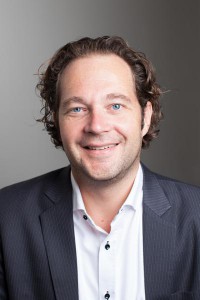
© Stefanie Freynschlag
Assoc. Prof. Robin Peeters, MD
Robin Peeters is internist-endocrinologist and Associate Professor of Clinical Endocrinology at Erasmus Medical Center since 2012. Since 2011, Peeters is the Head of the Rotterdam Thyroid Center, which is a collaboration between the Erasmus MC and the Rotterdam Eye Hospital, focusing on patients with complex thyroid diseases. His research involves many aspects of thyroid disease, including the important role of thyroid hormones in normal pregnancy and neurodevelopment. In 2009, Peeters did a post-doctoral research fellowship at the National Institute of Health, Bethesda, USA, analysing the consequences of detective thyroid hormone signalling for brain development. In recent years, he has published several high impact papers on the relationship between thyroid function, pregnancy outcome and child development in the Generation R cohort.
Role in EUthyroid
Within EUthyroid, ERASMUSMC will perform and lead the maternal iodine status during pregnancy and neuropsychological development of the offspring (WP4) by providing data from the Generation R study. The Generation R Study is a prospective cohort study from fetal life until young adulthood in a multi-ethnic urban population. The study is designed to identify early environmental and genetic causes of normal and abnormal growth, development and health from fetal life until young adulthood. ERASMUSMC will also contribute to the harmonisation of questionnaires (WP2) and will be a Regional Manager.
Korevaar TI, Steegers EA, Schalekamp-Timmermans S, Ligthart S, de Rijke YB, Visser WE, Visser W, de Muinck Keizer-Schrama SM, Hofman A, Hooijkaas H, Bongers-Schokking JJ, Russcher H, Tiemeier H, Jaddoe VW, Visser TJ, Medici M, Peeters RP. ‘Soluble Flt1 and Placental Growth Factor Are Novel Determinants of Newborn Thyroid (Dys)Function: the Generation R Study.‘ J Clin Endocrinol Metab. 2014.
Ghassabian A, El Marroun H, Peeters RP, Jaddoe VW, Hofman A, Verhulst FC, Tiemeier H, White T. ‘Downstream Effects of Maternal Hypothyroxinemia in Early Pregnancy: Nonverbal IQ and Brain Morphology in School-Age Children.‘ J Clin Endocrinol Metab. 2014;99:2383-90.
Medici M, Porcu E, Pistis G, Teumer A, Brown SJ, Jensen RA, Rawal R, Roef GL, Plantinga TS, Vermeulen SH, Lahti J, Simmonds MJ, Husemoen LL, Freathy RM, Shields BM, Pietzner D, Nagy R, Broer L, Chaker L, Korevaar TI, Plia MG, Sala C, Völker U, Richards JB, Sweep FC, Gieger C, Corre T, Kajantie E, Thuesen B, Taes YE, Visser WE, Hattersley AT, Kratzsch J, Hamilton A, Li W, Homuth G, Lobina M, Mariotti S, Soranzo N, Cocca M, Nauck M, Spielhagen C, Ross A, Arnold A, van de Bunt M, Liyanarachchi S, Heier M, Grabe HJ, Masciullo C, Galesloot TE, Lim EM, Reischl E, Leedman PJ, Lai S, Delitala A, Bremner AP, Philips DI, Beilby JP, Mulas A, Vocale M, Abecasis G, Forsen T, James A, Widen E, Hui J, Prokisch H, Rietzschel EE, Palotie A, Feddema P, Fletcher SJ, Schramm K, Rotter JI, Kluttig A, Radke D, Traglia M, Surdulescu GL, He H, Franklyn JA, Tiller D, Vaidya B, de Meyer T, Jørgensen T, Eriksson JG, O’Leary PC, Wichmann E, Hermus AR, Psaty BM, Ittermann T, Hofman A, Bosi E, Schlessinger D, Wallaschofski H, Pirastu N, Aulchenko YS, de la Chapelle A, Netea-Maier RT, Gough SC, Meyer Zu Schwabedissen H, Frayling TM, Kaufman JM, Linneberg A, Räikkönen K, Smit JW, Kiemeney LA, Rivadeneira F, Uitterlinden AG, Walsh JP, Meisinger C, den Heijer M, Visser TJ, Spector TD, Wilson SG, Völzke H, Cappola A, Toniolo D, Sanna S, Naitza S, Peeters RP. ‘Identification of novel genetic Loci associated with thyroid peroxidase antibodies and clinical thyroid disease.’ PLoS Genet. 2014;10:e1004123.
Korevaar TI, Schalekamp-Timmermans S, de Rijke YB, Visser WE, Visser W, de Muinck Keizer-Schrama SM, Hofman A, Ross HA, Hooijkaas H, Tiemeier H, Bongers-Schokking JJ, Jaddoe VW, Visser TJ, Steegers EA, Medici M, Peeters RP. ‘Hypothyroxinemia and TPO-antibody positivity are risk factors for premature delivery: the generation R study.’ J Clin Endocrinol Metab. 2013; 98:4382-90.
van Mullem A, van Heerebeek R, Chrysis D, Visser E, Medici M, Andrikoula M, Tsatsoulis A, Peeters RP, Visser TJ. Clinical phenotype and mutant TRα1. N Engl J Med. 2012;366:1451-3.
CONTACT INFO:
Erasmus Medical Centre Rotterdam
‘s Gravendijkwal 230, 3015CE Rotterdam, Netherlands
Assoc. Prof. Robin Peeters, MD
Function: Principal Investigator, Regional Manager, WP Leader 4
Email: r.peeters@nullerasmusmc.nl
Phone: 00 31 10 7043363


University of Latvia
University of Latvia (LU) is the leading research university in Latvia and perceives research as an integral part of the education process. The research work at the Faculty of Medicine and at the respective teaching hospitals is concentrated at institutes, clinical departments and laboratories. Research covers a broad area of theoretical and pre-clinical biomedical disciplines as well as the problems of diagnosis, therapeutic and prophylactic methods and processes of clinical medicine. Main areas of research are: biobanking, biomarker-based personalised prevention and treatment of internal diseases, pharmacogenomics, invasive cardiology and angiology, cancer research and prevention of multidrug resistant infections. LU participated in several national and international research programmes.
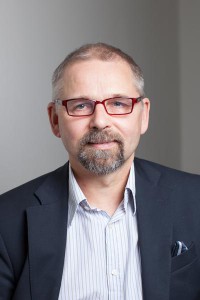
© Stefanie Freynschlag
Prof. Valdis Pirags, MD
Valdis Pirags is Chairman of the Department of Internal Medicine at the University of Latvia. He is one of the founders of the European Society of Endocrinology and is currently the IGN National Representative for Latvia. He has authored or co-authored more than 200 original scientific articles, book chapters and abstracts in national and international journals, including several papers on: thyroid diseases; on the genetics of Graves’ disease (2001); validity of multiplex biomarker model for the differential diagnosis of thyroid nodules (2011); seasonal iodine deficiency in Latvian school children (2012) and thyroid cancer in patients with acromegaly (2013). Pirags was one of the coordinators of the EU-funded project for the creation of the European Registry on Cushing’s syndrome (ERCUSYN). He has been responsible as Principal Investigator or Steering Committee member for numerous clinical trials in diabetes and endocrine diseases.
Role in EUthyroid
Within EUthyroid, as a Regional Manager, LU has access to national registries; therefore LU will provide national registry data to establish a joint European database with information on thyroid disease outcomes (WP1). LU will further contribute to the standardisation of different European registry data and statistical analyses in close collaboration with a trained statistician at CCRP (WP1). A national survey on the iodine status in pregnancy will also be conducted (WP2).
Konrade I, Dambrova M, Makrecka M, Neimane L, Strele I, Liepinsh E, Lejnieks A, Vevere P, Gruntmanis U, Pīrāgs V. Seasonal iodine deficiency in Latvian school children. Thyroid. 2012.
Ducena K, Abols A, Vilmanis J, Narbuts Z, Tārs J, Andrējeva D, Linē A, Pīrāgs V. Validity of multiplex biomarker model of 6 genes for the differential diagnosis of thyroid nodules. Thyroid Res. 2011;4(1):11.
Sjakste T, Eglite J, Sochnevs A, Marga M, Pirags V, Collan Y, Sjakste N. Microsatellite genotyping of chromosome 14q13.2-14q13 in the vicinity of proteasomal gene PSMA6 and association with Graves’ disease in the Latvian population. Immunogenetics. 2004 ;56(4):238-43.
Marga M, Denisova A, Sochnev A, Pirags V, Farid NR. Two HLA DRB 1 alleles confer independent genetic susceptibility to Graves disease: relevance of cross-population studies. Am J Med Genet. 2001;102(2):188-91.

© James Mason-Hudson CC BY-SA 4.0
CONTACT INFO:
University of Latvia
Rainis Boulevard 19, 1586 Riga, Latvia
Prof. Valdis Pirags, MD
Function: Principal Investigator, Regional Manager
Email: pirags@nulllatnet.lv
Phone: 00 371 29237760, 00 371 67069307


University of Surrey
University of Surrey (SURREY) was rated among the top eight UK institutions for biosciences, health sciences, psychology and veterinary research in 2014. SURREY consists of three main faculties: Faculty of Arts and Social Sciences, Faculty of Engineering and Physical Sciences, and Faculty of Health and Medical Sciences.
The Faculty of Health and Medical Sciences has four Schools, including the School of Biosciences and Medicine with 2,000 full-time and nearly 2,000 part-time students.
The Department of Nutritional Sciences of the School of Biosciences and Medicine has 18 academic staff (including five professors), two Emeritus professors, five research staff, seven tutorial fellows and 22 PhD students. The research mission of the Department is to understand human metabolic demands for nutrients and to optimise their provision as safe and appropriate food. Members of the Department have a broad range of expertise, ranging from metabolic, molecular, trace-element and public-health nutrition, to nutritional and diabetic medicine, and are skilled in running human studies including randomised controlled trials.
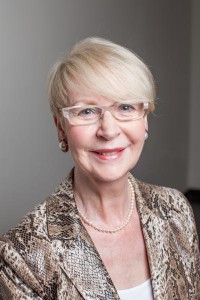
© Stefanie Freynschlag
Prof. Margaret Rayman
Margaret Rayman is Professor of Nutritional Medicine at the University of Surrey since 2007. Her research, which includes a number of randomised controlled trials, centres on the importance of trace elements to human health with particular emphasis on selenium and iodine in populations with marginal selenium or iodine deficiency. As part of her extensive work on iodine, she has determined the iodine status in UK schoolchildren, UK women of childbearing age and in a cohort of 230 pregnant women in whom parameters of thyroid function and Tg were also measured. Most notably, Rayman’s group found a significant association between mild-to-moderate iodine deficiency in UK pregnant women of the ALSPAC cohort and poorer IQ and reading ability in the offspring at ages 8 and 9 (Lancet 2013).
Role in EUthyroid
SURREY will be mainly involved in maternal iodine status during pregnancy and neuropsychological development of the offspring (WP4) by providing data from the ALSPAC cohort. ALSPAC is a major prospective, well-documented, UK cohort study in a population of mild-to-moderate iodine deficiency accessible to researchers at the University of Surrey.
Bath SC, Walter A, Taylor A, Wright J, Rayman MP. Iodine deficiency in pregnant women living in the South East of the UK: The influence of diet and nutritional supplements on iodine status. Br J Nutr. 2014;111:1622-1631.
Bath SC, Button S, Rayman MP. Availability of iodised table salt in the UK – is it likely to influence population iodine intake? Public Health Nutr. 2014;17: 450-454.
Bath SC, Rayman MP, Steer CD, Golding J, Emmett P. Effect of inadequate iodine status in UK pregnant women on cognitive outcomes in their children: Results from the Avon Longitudinal Study of Parents and Children (ALSPAC). Lancet. 2013;382 (9889):331-337.
Bath SC, Rayman MP. Antenatal thyroid screening and childhood cognitive function. New England J Med. 2012;366:1640-1641.
Bath SC, Button S, Rayman MP. Iodine concentration of organic and conventional milk: implications for iodine intake. Br J Nutr. 2011;107:935-940.
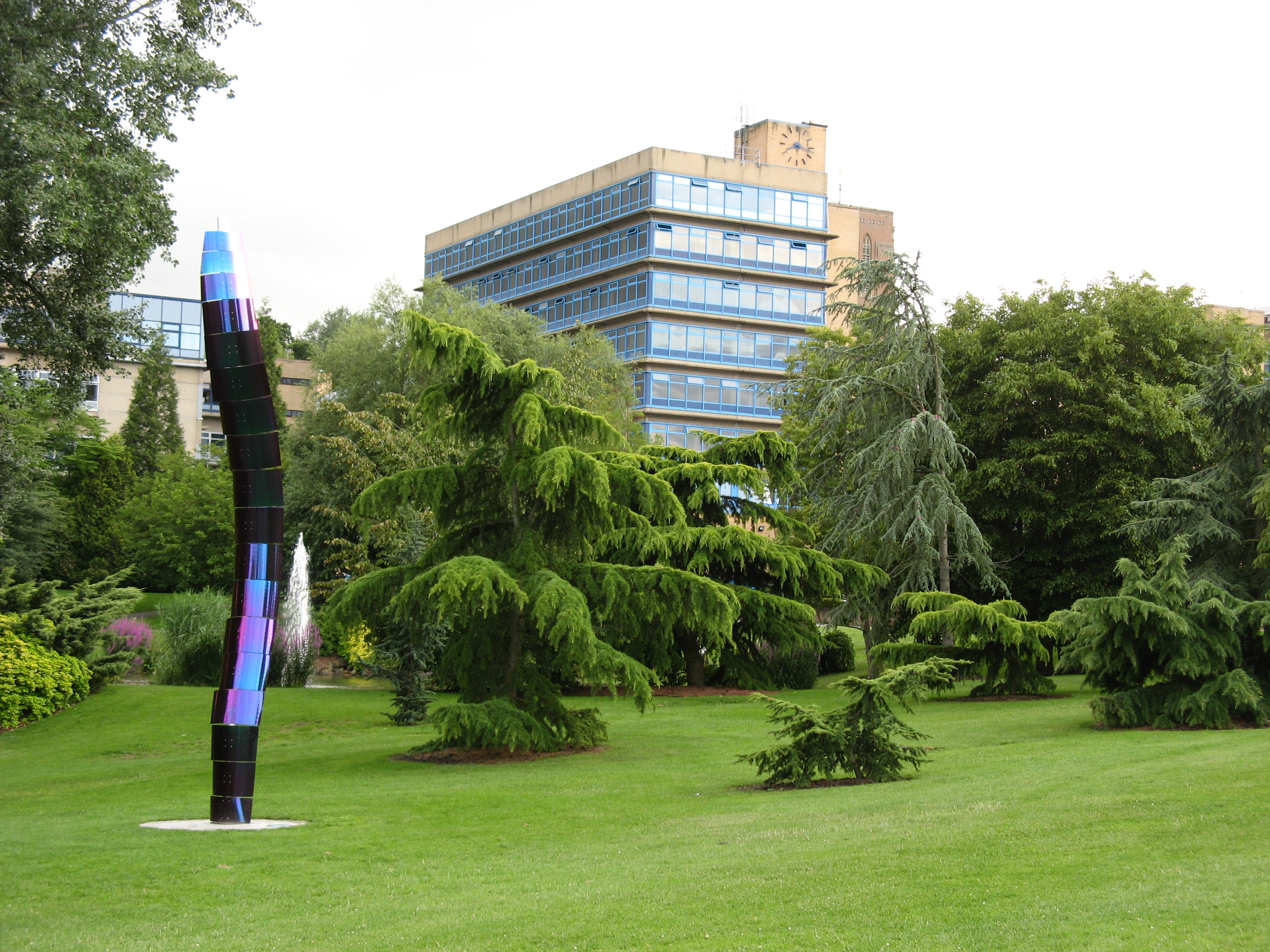
© Wikimedia Commons
CONTACT INFO:
University of Surrey
Stag Hill, GU2 7XH Guildford, United Kingdom
Prof. Margaret Rayman
Function: Principal Investigator
Email: m.rayman@nullsurrey.ac.uk
Phone: 00 44 1483 68 6447


UMIT – University for Health Sciences, Medical Informatics and Technology
UMIT – University for Health Sciences, Medical Informatics and Technology in Austria is devoted to the study of health and life sciences including public health, health policy, health management, health services research, nursing science, medical informatics/bioinformatics and related disciplines. The mission of the Institute of Public Health, Medical Decision Making and Health Technology Assessment (IPH) at UMIT is to develop and apply interdisciplinary methods to guide the comprehensive, systematic and practice-oriented assessment of measures and procedures in public health and medicine. The scientific focus of the Institute is an interdisciplinary public health approach with the aim of evaluating the effect of health technologies on short- and long-term benefits, quality of life, risks, costs and cost effectiveness for individuals, populations and the overall health care system to inform clinical guideline development and health technology assessment (HTA).
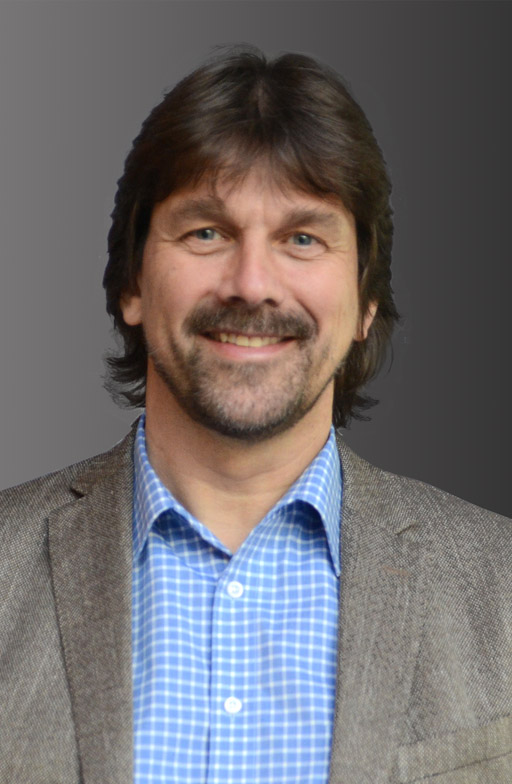
© UMIT/Kern
Prof. Uwe Siebert, MD, MPH, MSc, ScD
Uwe Siebert is Professor of Public Health, Chairman of the Department of Public Health, Health Services Research and Health Technology Assessment at UMIT, and Director of the Division for HTA in the ONCOTYROL. Siebert is also Adjunct Professor of Health Policy and Management at the Harvard Chan School of Public Health, and Director of the Program on Cardiovascular Research at the Institute for Technology Assessment and Department of Radiology at the Massachusetts General Hospital, Harvard Medical School. Siebert’s research interests include: applying evidence-based quantitative and translational methods from public health, epidemiology, comparative effectiveness research, outcomes research, and economic evaluation and decision sciences in the framework of health technology assessments (HTA) as well as in the clinical context of routine health care. Siebert advises government agencies, academic institutions and the industry regarding the conduction and impact of health technology assessments on policy and reimbursement decisions. He has authored more than 300 publications including HTA reports, textbook chapters, scientific articles, and editorials. He is also Associate Editor of the International Journal of Public Health as well as editorial board member of several scientific journals.
Role in EUthyroid
Within EUthyroid, UMIT will perform and lead the health economics, health technology assessment and health policy (WP5). UMIT will evaluate the long-term effectiveness and cost-effectiveness of IDD prevention programmes and further investigate the national barriers against IDD prevention and monitoring programmes.
Rochau U, Sroczynski G, Wolf D, Schmidt S, Conrads-Frank A, Jahn B, Saverno K, Brixner D, Radich J, Gastl G, Siebert U. Medical decision analysis for first-line therapy of chronic myeloid leukemia. Leukemia & Lymphoma. 2014;0(0):1-10.
Rochau U, Schwarzer R, Jahn B, Sroczynski G, Kluibenschaedl M, Wolf D, Radich J, Brixner D, Gastl G, Siebert U. Systematic Assessment of Decision-Analytic Models for Chronic Myeloid Leukemia. Appl Health Econ Health Policy. 2014;103-115.
Siebert U, Rochau U, Claxton K. When is enough evidence enough? – Using systematic decision analysis and value-ofinformation analysis to determine the need for further evidence. Z Evid Fortbild Qual Gesundhwes. 2013;107(9-10):575-84.
Siebert U, Alagoz O, Bayoumi AM, Jahn B, Owens DK, Cohen DJ, Kuntz KM. State-Transition Modeling: A Report of the ISPOR-SMDM Modeling Good Research Practices Task Force -3. Medical Decision Making. 2012;32(5):690-700.
Sroczynski G, Schnell-Inderst P, Mühlberger N, Lang K, Aidelsburger P, Wasem J, Mittendorf T, Engel J, Hillemanns P, Petry KU, Krämer A, Siebert U. [Decision-analytic modeling to evaluate the long-term effectiveness and cost-effectiveness of HPV-DNA testing in primary cervical cancer screening in Germany]. Health Technology Assessment. Cologne: DIMDI, 2010;1- 127.

© UMIT/Kern
CONTACT INFO:
UMIT – University for Health Sciences, Medical Informatics and Technology
Edward Wallnoefer-Zentrum 1, 6060 Hall in Tirol, Austria
Prof. Uwe Siebert, MD, MPH, MSc, ScD
Function: Principal Investigator, WP leader 5
Email: public-health@nullumit.at
Phone: 00 43 50 8648 3930


The Capital Region of Denmark, Centre for Clinical Research and Prevention
The Research Centre for Prevention and Health (RCPH) of the Capital Region of Denmark is the oldest (since 1964) research centre in Denmark within the field of population based epidemiology and prevention. In 2018, RCPH and Department of Clinical Epidemiology merged to form the Centre for Clinical Research and Prevention (CCRP). RCPH brings extensive experience in registry-based studies and demographic databases. The staff at the former-RCPH comprises 70 people including 3 clinical professors, 4 associate professors, 10 senior researchers, several PhD students and research assistants, and in-house statistical and IT support. RCPH has ranked as the highest scoring institute in the Capital Region of Denmark regarding research. The annual number of articles in peer-reviewed international journals is more than 100 (in total more than 2,500 articles), and 150 academic theses have been published since 1967. The Director of the former-RCPH, Professor Torben Jørgensen, was one of the promoters and is member of the steering committee of The Danish Investigation on Iodine Intake and Thyroid Disease (DanThyr) that is set up to monitor the iodine fortification programme in Denmark. CCRP employs a number of trained data managers and statisticians providing great expertise to meet methodological challenges.
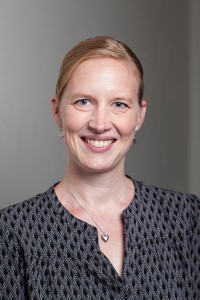
© Stefanie Freynschlag
Betina H. Thuesen, PhD
Betina H. Thuesen is a senior researcher at the CCRP and an experienced epidemiologist. She has worked with various micronutrients in relation to chronic diseases and has recently taken over the responsibility of the part of DanThyr that compiles data from the national Danish registries on the use of thyroid medication, thyroid surgery, and radioiodine therapy. Thuesen is a very dedicated researcher with great skills in epidemiological and statistical methods and the use of registry data.
Role in EUthyroid
Within EUthyroid, CCRP will be responsible for organising the establishment of a joint European database, and as a Regional Manager will have access to national registries (WP1). The database will include information on measures of thyroid related disorders and treatments in addition to demographic data describing the distribution of age and gender in the different European populations. The data processing and statistical analyses will be carried out at CCRP.
Thuesen BH, Cerqueira C, Aadahl M, Ebstrup JF, Toft U, Thyssen JP, Fenger RV, Hersoug LG, Elberling J, Pedersen O, Hansen T, Johansen JD, Jørgensen T, Linneberg A. Cohort Profile: The Health 2006 cohort, research Centre for prevention and Health. Int J Epidemiol. 2014;43(2):568-75.
Toft U, Cerqueira C, Andreasen AH, Thuesen BH, Laurberg P, Ovesen L, Perrild H, Jørgensen T. Estimating salt intake in a Caucasian population: can spot urine substitute 24-hour urine samples? Eur J Prev Cardiol. 2013[Epub ahead of print].
Thuesen B, Husemoen L, Fenger M, Jakobsen J, Schwarz P, Toft U, Ovesen L, Jørgensen T, and Linneberg A. Determinants of vitamin D status in a general population of Danish adults. Bone. 2012;50(3):605-10.
Cerqueira C, Knudsen N, Ovesen L, Perrild H, Rasmussen LB, Laurberg P, Jørgensen T. Association of iodine fortification with incident use of antithyroid medication – a Danish Nationwide Study. J Clin Endocrinol Metab. 2009;94(7):2400-5.
Laurberg P, Jørgensen T, Perrild H, Ovesen L, Knudsen N, Pedersen IB, Rasmussen LB, Carlé A, Vejbjerg P. The Danish investigation on iodine intake and thyroid disease, DanThy: status and perspectives. Eur J Endocrinol. 2006;155(2):219-28. Erratum in: Eur J Endocrinol. 2006;155(4):643.
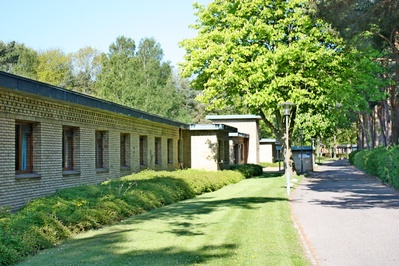
© Birgitte Pickering
CONTACT INFO:
The Capital Region of Denmark, Centre for Clinical Research and Prevention
Kongens Vaenge 2, 3400 Hillerod, Denmark
Betina H. Thuesen, PhD
Function: Principal Investigator, Regional Manager, WP leader 1
Email: beheth01@nullregionh.dk
Phone: 00 45 386 332 09


Swiss Federal Institute of Technology Zurich
The Swiss Federal Institute of Technology Zurich (ETHZ) is one of the world’s leading universities for technology and the natural sciences. It has nearly 18,000 students from over 100 different countries, of which 3,800 are doctoral students. The Laboratory of Human Nutrition at the Department of Health Sciences and Technology of ETH Zurich is a leading group internationally in the field of iodine nutrition.
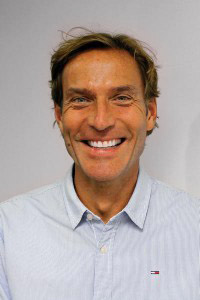
© biolution GmbH
Prof. Michael Zimmermann, MD
Michael Zimmermann has been a Professor of Human Nutrition at the Department of Health Sciences and Technology at ETH Zurich since 2012. Zimmermann is Head of the Laboratory of Human Nutrition. He is an internationally recognised expert in iodine deficiency disorders. Zimmermann’s research field is human nutrition with a focus on micronutrient deficiencies. His emphasis is on the health effects of iron, iodine, zinc and calcium deficiencies and the development of food-based strategies to correct them. His expertise includes trace mineral biochemistry, novel biomarkers and stable isotope techniques.
Role in EUthyroid
Within EUthyroid, ETHZ will be leading the development and validation of dry blood spot (DBS) thyroglobulin (Tg) as a novel functional biomarker, and the application of the reference range for Tg (WP3). As a Regional Manager, ETHZ has access to national registries; therefore it will provide national registry data to establish a joint European database with information on thyroid disease outcomes (WP1). In addition, ETHZ will participate on the harmonisation of questionnaires (WP2).
Bouhouch RR, Bouhouch S, Cherkaoui M, Aboussad A, Stinca S, Haldimann M, Andersson M, Zimmermann MB. Direct iodine supplementation of infants versus supplementation of their breastfeeding mothers: a double-blind, randomised, placebo-controlled trial. Lancet Diabetes Endocrinol. 2014;2(3):197-209.
Zimmermann MB. Nutrition: Are mild maternal iodine deficiency and child IQ linked? Nat Rev Endocrinol. 2013;9(9):505-6.
Zimmermann MB. Iodine deficiency and excess in children: worldwide status in 2013. Endocr Pract. 2013;19(5):839-46.
Zimmermann MB, Aeberli I, Andersson M, Assey V, Yorg JA, Jooste P, Jukić T, Kartono D, Kusić Z, Pretell E, San Luis TO Jr, Untoro J, Timmer A. Thyroglobulin is a sensitive measure of both deficient and excess iodine intakes in children and indicates no adverse effects on thyroid function in the UIC range of 100-299 mcg/L: a UNICEF/ IGN study group report. J Clin Endocrinol Metab. 2013;98(3):1271-80.
Zimmermann MB, Andersson M. Assessment of iodine nutrition in populations: past, present, and future. Nutr Rev. 2012;70(10):553-70.

© Wikimedia Commons
CONTACT INFO:
Swiss Federal Institute of Technology Zurich
Raemistrasse 101, 8092 Zuerich, Switzerland
Prof. Michael Zimmermann, MD
Function: Principal Investigator, Regional Manager, WP leader 3
Email: michael.zimmermann@nullhest.ethz.ch
Phone: 00 41 44 632 86 57


biolution GmbH
Biolution (BIOL) specialises in communication and project management services for the life sciences. The company´s know-how focuses on the clear and efficient transport of complex messages. BIOL combines proficiency in project management, science, public relations, graphics, and new media. BIOL acquired relevant expertise in the support of several consortia of FP6, FP7 and Horizon 2020 funded projects providing efficient solutions for administration and dissemination strategies for knowledge management, web platforms, and media.
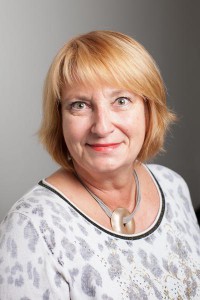
© Stefanie Freynschlag
Dr. Iris Grünert
Iris Grünert founded biolution in 2002 and successfully developed it into a communication agency. She holds a PhD in biology from the University of Heidelberg, Germany and spent many years in biomedical research before branching out into project management and communication. Her skills in communication and EU project management are to bring modern communication solutions to research and development projects. Grünert´s close involvement with the project´s coordinator will enable her to provide appropriate and project tailored communication and dissemination solutions for the project.
Role in EUthyroid
Within EUthyroid, BIOL will be partner in management (WP7) and dissemination (WP6). BIOL will support the Coordinator regarding administrative, financial and legal management tasks (WP7). State of the art communication measures will be used to foster communication within and beyond the Consortium, to control the project progress, to enable precise budget allocation and to guarantee timely delivery of project deliverables and reports. In addition, BIOL will be involved in the adequate project dissemination in close collaboration with IGN and UMG. This includes the development of all graphics and printing materials, press work, web and interactive media (WP6).
DEVELAGE (FP7-278486), Pathways common to brain development and ageing: defining strategies for preventive therapy and diagnostics.
SYMPATH (FP7-602999), Reach alpha-synuclein-dependent neurodegeneration: clinical development of therapeutic AFFITOPE vaccines for Parkinson’s disease and multisystem atrophy.
Partner for dissemination:
SYSVASC (FP7- 603288), Systems Biology to Identify Molecular Targets for Vascular Disease Treatment.
EARLY-NUTRITION (FP7- 289346), Long-term effects of early nutrition on later health.
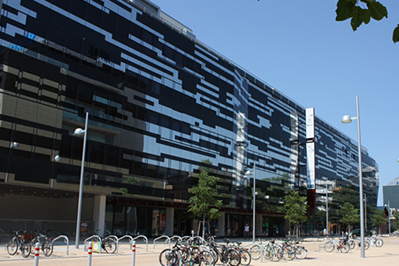
© biolution GmbH
CONTACT INFO:
biolution GmbH
Helmut Qualtinger Gasse 2/2, 1030 Vienna, Austria
Dr. Iris Grünert
Function: Principal Investigator
Email: gruenert@nullbiolution.net
Phone: 00 43 1 786 95 95


The Barcelona Institute for Global Health
The Centre for Research in Environmental Epidemiology (CREAL) was established in 2005 as a joint initiative of the Catalan Government, the Institut Municipal d’Investigació Mèdica (IMIM-Hospital del Mar) and the Universitat Pompeu Fabra (UPF) with the mission of promoting and developing advanced epidemiological research into the environmental factors that affect human health, and preventing health risks. It has become a global leader in environmental epidemiology research with a strong focus on the influence of environmental conditions and contamination on child health, cancer and respiratory diseases. Its capacity to develop and apply advanced epidemiological and statistical methods, including from genomics to geographical methods, contributes to its international leadership. In 2016, after 3 years of a strategic alliance between CREAL and ISGlobal (The Barcelona Institute for Global Health), the institutes merged. The resulting institute retains the ISGlobal name. The child health programme of ISGlobal is involved in the EUthyroid project.
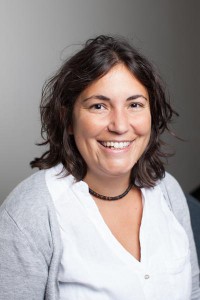
© Stefanie Freynschlag
Ass. Res. Prof. Mònica Guxens, MD
Mònica Guxens is a medical doctor specialised in Preventive Medicine and Public Health. She is currently Assistant Research Professor at ISGlobal and a member of the Steering Committee of the INMA project. Her research has been focused on the study of the association between several environmental factors, mainly air pollution, persistent organic pollutants, electromagnetic fields, and maternal psychological distress on child growth and development. Guxens has participated in 4 European projects funded by the FP7 and 3 International Consortiums. Guxens gained extensive expertise in the analysis of cognitive function and behavioural problems in children, leading and performing joint analyses among several European birth cohorts where these outcomes have been measured with different tools and at different ages as it is planned in the EUthyroid project (Epidemiology 2014).
Role in EUthyroid
Within EUthyroid, ISGlobal will be involved in the maternal iodine status during pregnancy and neuropsychological development of the offspring (WP4) by providing data from the INMA project. The INMA project is a population-based prospective birth cohort study concerned with the associations between pre- and post-natal environmental exposures and growth, health and development from early fetal life until adolescence.
Julvez J, Alvarez-Pedrerol M, Rebagliato M, Murcia M, Forns J, Garcia-Esteban R, Lertxundi N, Espada M, Tardón A, Riaño Galán I, Sunyer J. Thyroxine levels during pregnancy in healthy women and early child neurodevelopment. Epidemiology. 2013;24(1):150-7.
Rebagliato M, Murcia M, Espada M, Alvarez-Pedrerol M, Bolúmar F, Vioque J, Basterrechea M, Blarduni E, Ramón R, Guxens M, Foradada CM, Ballester F, Ibarluzea J, Sunyer J. Iodine intake and maternal thyroid function during pregnancy. Epidemiology. 2010;21(1):62-9.
Murcia M, Rebagliato M, Espada M, Vioque J, Santa Marina L, Alvarez-Pedrerol M, Lopez-Espinosa MJ, León G, Iñiguez C, Basterrechea M, Guxens M, Lertxundi A, Perales A, Ballester F, Sunyer J. Iodine intake in a population of pregnant women: INMA mother and child cohort study, Spain. J Epidemiol Community Health. 2010;64(12):1094-9.
Rebagliato M, Murcia M, Alvarez-Pedrerol M, Espada M, Fernández-Somoano A, Lertxundi N, Navarrete-Muñoz EM, Forns J, Aranbarri A, Llop S, Julvez J, Tardón A, Ballester F. Iodine supplementation during pregnancy and infant neuropsychological development. INMA Mother and Child Cohort Study. Am J Epidemiol. 2013;177(9):944-53.
Guxens M, Garcia-Esteban R, Giorgis-Allemand L, Forns J, Badaloni C, Ballester F, Beelen R, Cesaroni G, Chatzi L, de Agostini M, de Nazelle A, Eeftens M, Fernandez MF, Fernández-Somoano A, Forastiere F, Gehring U, Ghassabian A, Heude B, Jaddoe VWV, Klümper C, Kogevinas M, Krämer U, Larroque B, Lertxundi A, Lertxundi N, Murcia M, Navel V, Nieuwenhuijsen M, Porta D, Ramos Diaz R, Roumeliotaki T, Slama R, Sørensen M, Stephanou E, Sugiri D, Tardón A, Tiemeier H, Tiesler CMT, Verhulst FC, Vrijkotte T, Wilhelm M, Brunekreef B, Pershagen G,et al, Sunyer J. Air pollution during pregnancy and childhood cognitive and psychomotor development in 6 European birth cohort studies. Epidemiology.2014 (in press).
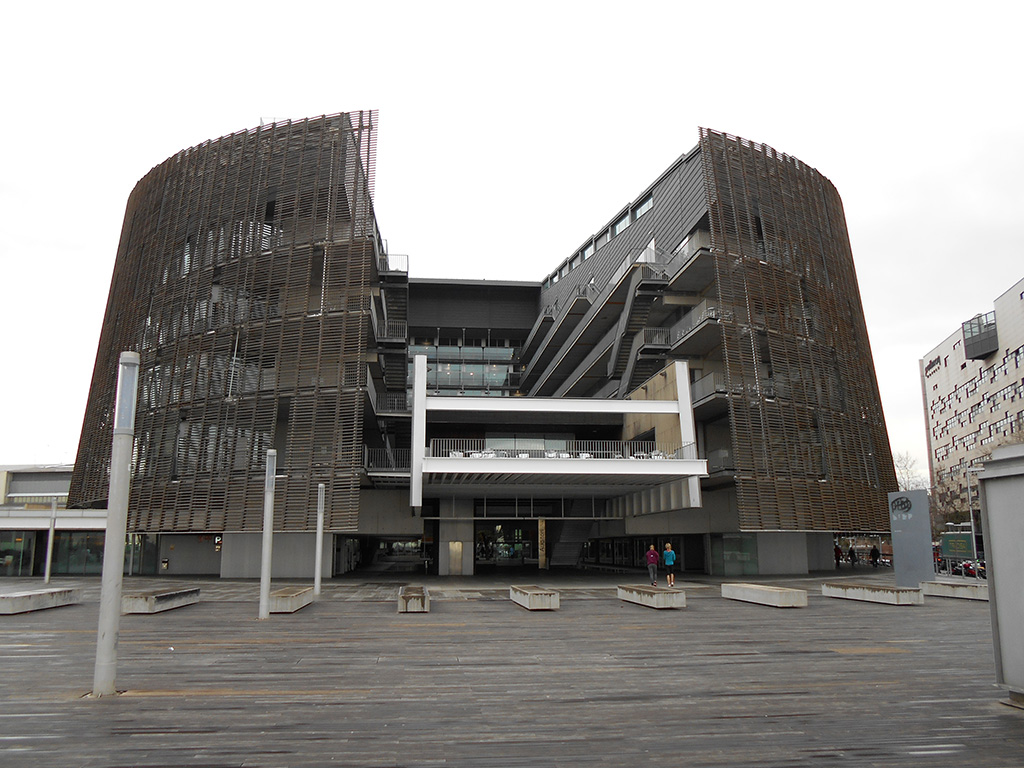
© Canaan / Creative Commons
CONTACT INFO:
The Barcelona Institute for Global Health – Campus Mar
Calle Doctor Aiguader 88, 08003 Barcelona, Spain
Ass. Res. Prof. Mònica Guxens, MD
Function: Principal Investigator
Email: monica.guxens@nullisglobal.org
Phone: 00 34 932 147 394


University Hospital Center “Sestre Milosrdnice”
The Department of Oncology and Nuclear Medicine of the University Hospital Center “Sestre milosrdnice” (KBCSM) is an internationally recognised institution and research centre for thyroid diseases, especially in the field of eradication of iodine deficiency and control of iodine prophylaxis. The Department is the Thyroid Diseases Referral Centre of the Croatian Ministry of Health, as well as a medical education facility of the Medical School of the University of Zagreb and School of the Dental Medicine of the University of Zagreb. A comprehensive approach to thyroid diseases management is achieved by cooperation with experts from the following institutions: Iodine Global Network (IGN), International Atomic Energy Agency (IAEA), World Health Organisation (WHO), “Ruđer Bošković” Institute, Croatian National Institute of Public Health and the Institute of Public Health “Andrija Štampar”.
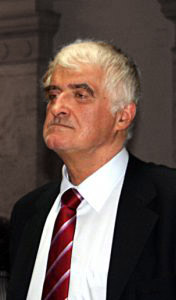
© Wikimedia Commons
Prof. Zvonko Kusić
Zvonko Kusić is Chairman of the Department of Oncology and Nuclear Medicine “Sestre milosrdnice”, President of the Croatian Academy of Sciences and Arts (CASA), Founder and Chairman of the Croatian Thyroid Society, Chairman of the Commission for Eradication of Endemic Goitre and Control of Iodine Prophylaxis of the Ministry of Health, and National IGN Representative for Croatia. Kusić initiated the new Law on Salt Iodination in Croatia that was adopted in 1996. The result of that action was the elimination of goitre and all other disorders caused by iodine deficiency, but most importantly impairment in psychomotor development of children. His science record spans almost 800 articles out of which 124 are indexed in the bibliographic database Current Contents. His articles have been cited more than 600 times. He authored, co-authored or edited 63 scientific and professional books and textbooks. His expertise in the field of eradication of iodine deficiency and control of iodine prophylaxis will significantly contribute to successful project management and research.
Role in EUthyroid
KBCSM will be involved in EUthyroid through a new nationwide iodine status study that will be performed in 2015-2017 with 2,000 schoolchildren and 1,000 pregnant women enrolled from all four major geographic regions of Croatia (WP2). Access to the national thyroid cancer registry is also available as a Regional Manager (WP1).
Eggermont AMM, Suicu S, Santinami M, Testori A, Kruit WHJ, Marsden J, Punt CJA, Sales F, Gore M, MacKie R, Kusić Z, Dummer R, Hauschild A, Musat E, Spatz A, Keilholz U. Adjuvant therapy with pegylated interferon alfa-2b versus observation alone in resected stage III melanoma: final results of EORTC 18991, a randomised phase III trial. Lancet 2008; 372:117-126.
Bottomley A, Coens C, Suciu S, Santinami M, Kruit W, Testori A, Marsden J, Punt C, Sales F, Gore M, MacKie R, Kusic Z, Dummer R, Patel P, Schadendorf D, Spatz A, Keilholz U, Eggermont A. Adjuvant Therapy With Pegylated Interferon Alfa-2b Versus Observation in Resected Stage III Melanoma: A Phase III Randomized Controlled Trial of Health-Related Quality of Life and Symptoms by the European Organisation for Research and Treatment of Cancer Melanoma Group. J Clin Oncol 2009; 27: 2916-2923.
Zimmermann MB, Aeberli I, Andersson M, Assey V, Jorg JA, Jooste P, Jukić T, Kartono D, Kusić Z, Pretell E, San Luis TO Jr, Untoro J, Timmer A. Thyroglobulin is a sensitive measure of both deficient and excess iodine intakes in children and indicates no adverse effects on thyroid function in the UIC range of 100-299 μg/L: a UNICEF/ IGN study group report. J Clin Endocrinol Metab 2013; 98(3): 1271-80.
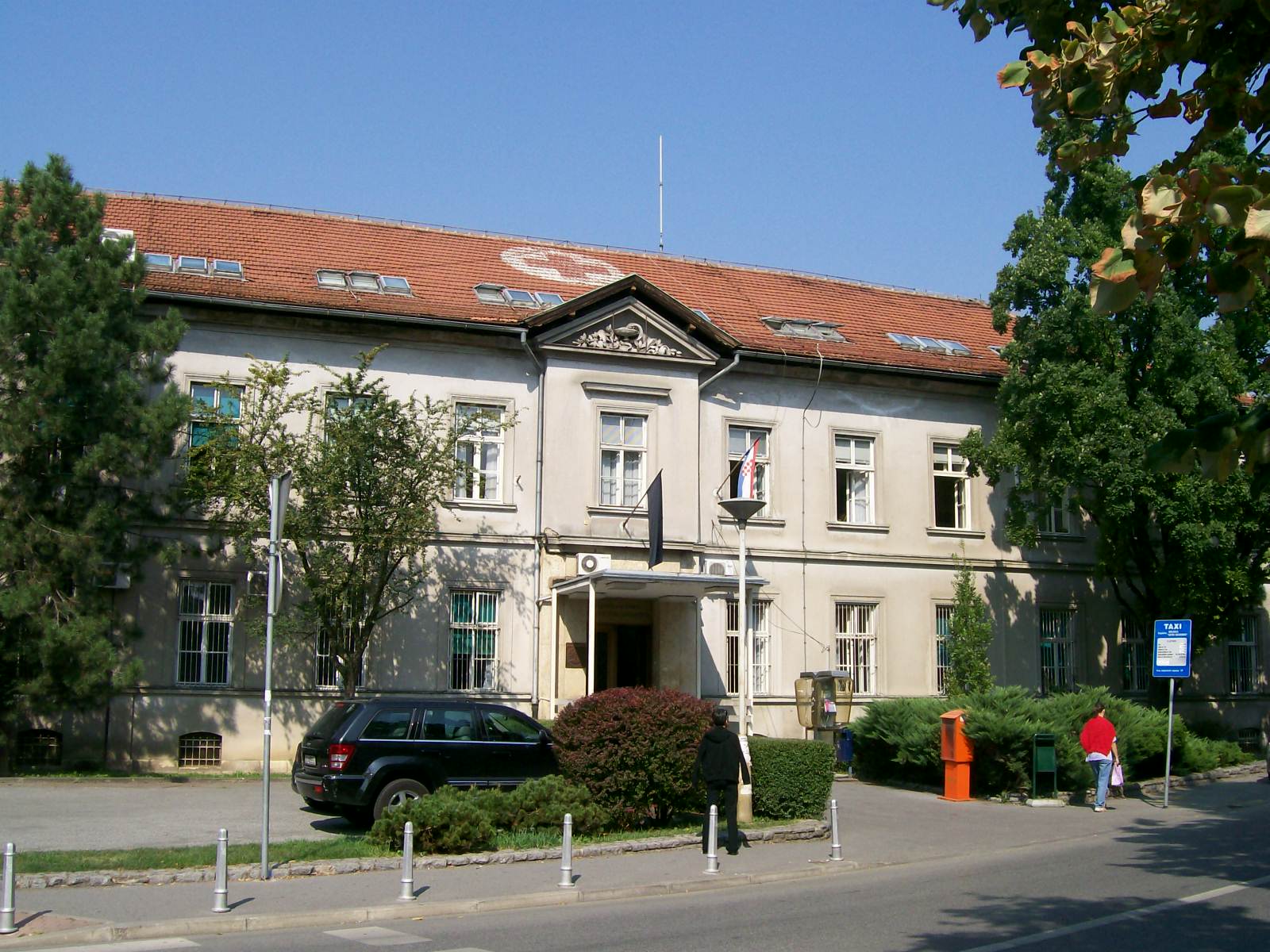
© Wikimedia Commons
CONTACT INFO:
University Hospital Center “Sestre Milosrdnice”
Vinogradska Cesta 29, 10000 Zagreb, Croatia
Prof. Zvonko Kusić
Function: Regional Manager
Email: zvonko.kusic@nullzg.t-com.hr
Phone: 00 385 14 89 5122


Free University of Brussels
The Department of Nuclear Medicine at Erasme Hospital belongs to the academic medical center of the Free University of Brussels (ULB), and is a nationally and internationally recognised centre for iodine nutrition and thyroid diseases. It originally opened its doors in 1977 and currently employs around 3,000 staff, who provide treatment for about 260,000 outpatients and 26,000 inpatients in 858 beds each year. The mission is to provide superior health care, ever mindful of each patient’s dignity and individuality, and to deliver services in a way that meet the needs and expectations of our patients and their families. While the majority of patients are recruited in Brussels and in the central provinces of Belgium, the Erasme Hospital maintains a national and international reputation for clinical practice, research and education. Patients from all parts of Belgium and abroad make use of its highly specialised facilities. ULB’s Professors and researchers have a long tradition of collaboration with colleagues throughout Belgium and other countries. Every year, 300 medical students and many other nursing and physical therapy students are educated or receive practical work experience at ULB.

© Stefanie Freynschlag
Prof. Rodrigo Moreno-Reyes, MD
Rodrigo Moreno-Reyes is the Head of the Clinic in the Department of Nuclear Medicine at Erasme Hospital and a lecturer on endocrine physiology at the ULB. His main interests are iodine nutrition, thyroid diseases including thyroid cancer, thyroid imaging by ultrasound, thyroid scintigraphy, and positron emission tomography (PET) scanning. He has participated in several studies on iodine nutrition at a national and international level. He has worked in Darfur, Sudan and Tibet documenting the severe iodine deficiency in these regions. Moreno-Reyes represents Belgium in the Iodine Global Network and advises the Belgian Ministry of Health on iodine nutrition policy. At the national level, he recently coordinated two national studies on iodine status in Belgium in children and pregnant women. He is an advisor to the Belgian Ministry of Health for the implementation of policies to control iodine deficiency.
Role in EUthyroid
Within EUthyroid, as a Regional Manager, ULB has access to national registries; therefore, ULB will be instrumental to obtain the data on iodine status and thyroid diseases in Belgium (WP1).
Moreno-Reyes R, Glinoer D, Van Oyen H, Vandevijvere S. High Prevalence of Thyroid Disorders in Pregnant Women in a Mildly Iodine-deficient Country: A Population-Based Study. J Clin Endocrinol Metab. 2013; 98:3694-701.
Vandevijvere S, Amsalkhir S, Mourri AB, Van Oyen H, Moreno-Reyes R. Iodine deficiency among Belgian pregnant women not fully corrected by iodine-containing multivitamins: a national cross-sectional survey. Br J Nutr. 2012; 19:1-9.
Vandevijvere S, Mourri AB, Amsalkhir S, Avni F, Van Oyen H, Moreno-Reyes R. Fortification of bread with iodized salt corrected iodine deficiency in school-aged children, but not in their mothers: a national cross-sectional survey in Belgium. Thyroid. 2012; 22:1046-53.
Moreno-Reyes R, Egrise D, Boelaert M, Goldman S, Meuris S. Iodine deficiency mitigates growth retardation and osteopenia in selenium-deficient rats. J Nutr. 2006;136:595-600.
Moreno-Reyes R, Suetens C, Mathieu F, Begaux F, Dun Zhu, Rivera MT, Boelaert M, Nève J, Perlmutter N and Vanderpas J. Kashin-Beck Osteoarthropathy in Rural Tibet in relation to selenium and iodine status. N Engl J Med 1998; 339: 1112-20.
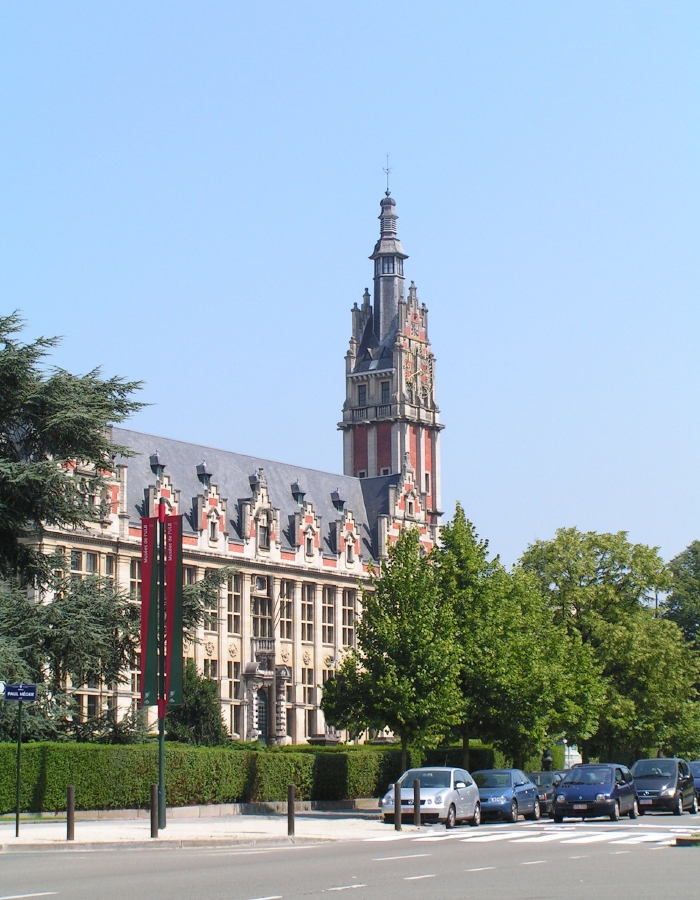
© Wikimedia Commons
CONTACT INFO:
Free University of Brussels
Avenue Franklin Roosevelt 50, 1050 Bruxelles, Belgium
Prof. Rodrigo Moreno-Reyes, MD
Function: Regional Manager
Email: rmorenor@nullulb.ac.be
Phone: 00 32 02 5553300


Sofia University, Faculty of Medicine, “Lozenetz”
The Faculty of Medicine “Lozenetz” of Sofia University (LOZENETS) is the first High Medical School in Bulgaria founded in 1917. More than 500 students are currently being trained at the Faculty of Medicine in three professional fields: medicine, nursing and rehabilitation, and occupational therapy. The academic staff is represented by 125 highly qualified professors in all medical specialties. The main clinical base for student’s educational training is Lozenets University Hospital, which is one of the most modern public hospitals in Bulgaria. The faculty staff members are currently involved in five national and nine international research projects, working in several scientific areas.

© Stefanie Freynschlag
Assoc. Prof. Ludmila Ivanova, MD
Ludmila Ivanova is a medical doctor with specialisation in Nutrition and Toxicology, and with Public Health and Community Nutrition training. She has worked on IDD and other micronutrient malnutrition projects for more than 20 years. Moreover, Ivanova has 20 years experience in management of development programmes in nutrition; in the assessment of nutrition status, screening for iodine deficiency and other micronutrient malnutrition, the assessment of iodine nutrition, the development of nutrition recommendations and implementation of nutritional strategies. Ivanova was a Nutrition Specialist and Project Coordinator in the UNICEF Ukraine IDD elimination project. She has a strong technical background in physiology, metabolism of micronutrients, micronutrient malnutrition, strategies for the prevention of micronutrient malnutrition using evidence-based norms, standards and international recommendations, and experience in ensuring results-based implementation and the monitoring and evaluation of implemented strategies. Furthermore, she is experienced in building and maintaining effective partnerships with national counterparts, UN agencies, bilateral donors and NGOs. Furthermore, Ivanova is a successful trainer and lecturer in nutrition.
Role in EUthyroid
Within EUthyroid, LOZENETS will serve as a Regional Manager in the collection of data from national registries and will be involved in establishing a joint database (WP1). In addition, LOZENETS will conduct one survey of iodine status in schoolchildren, pregnant and non-pregnant women (WP2).
Ivanova LB, Ivanova RB, Kovacheva R, Lozanov BS: Ioduria in Pregnant Women after Implementation of Universal Iodization of Table Salt in Bulgaria, Endocrinologia. 2013,18,(1), 5-11;37.
Ivanova LB, Ivanova RB, Kovatcheva R, Lozanov B. Iodine excretion in pregnant women after introduction of universal salt iodization in Bulgaria. Endocrinologia. 2013;Vol XVIII, Nr.1.
Ivanova LB, Mikushinska N. Monitoring and Evaluation Indicators for IDD Control Programme in Bulgaria. Trakia Journal of Sciences. 2012;Vol 10, Suppl. 3,79-82.
Ivanova LB, Trush O. Iodized Salt and the Elimination of Iodine Deficiency: A Model from Western Ukraine. Practical Manual, UNICEF Ukraine, 2008.
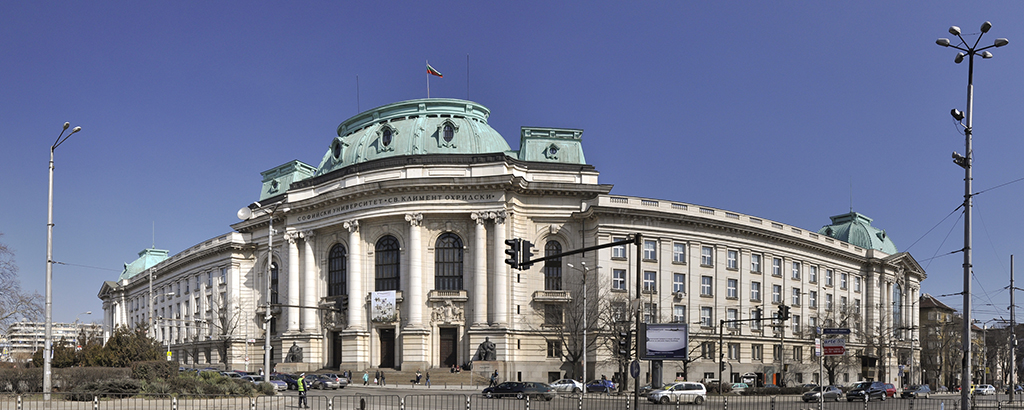
© Wikimedia Commons
CONTACT INFO:
Sofia University, Faculty of Medicine, “Lozenetz”
1 Koziak Str., 1407 Sofia, Bulgaria
Assoc. Prof. Ludmila Ivanova, MD
Function: Regional Manager
Email: ljudmilabi@nullmed.uni-sofia.bg
Phone: 00 35 929 607 682


University of Pisa
The Department of Clinical and Experimental Medicine, is part of the Medical School of the University of Pisa (PISA). It is a public institution officially engaged in teaching, research and clinical activities. In particular, the Endocrinology Unit, where the work will be carried out is an internationally recognised clinical research centre focusing on thyroid diseases. It runs a specialised outpatient clinic with approximately 50,000 patients annually. The infrastructure available at the University of Pisa enables the Endocrinology Unit to rapidly recruit a substantial number of patients affected by nodular goitre, autoimmune thyroid diseases with hypo and hyperthyroidism and thyroid cancer. Ultrasound and scintiscan examinations, fine needle aspiration and lab facilities for thyroid hormone measurements are available. The Endocrinology Unit is also responsible for Spot TSH measurement in the programme of neonatal screening for congenital hypothyroidism for the region of Tuscany. In addition to clinical studies, translational research is carried out. The section of Endocrinology has links with several European and American institutions with scientific interest in endocrinology in general and thyroidology in particular. Its relationship with these institutions is attested to by a continuous exchange of scientists between its laboratory and the laboratories of foreign institutions.
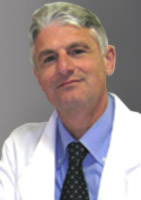
© Department of Clinical and Experimental Medicine, Endocrinoloy Unit – University of Pisa
Prof. Paolo Vitti, MD
Paolo Vitti is Chief of the Endocrinology Unit at the Department of Clinical and Experimental Medicine at the University Hospital of Pisa, and Director of the Endocrinology School at the University of Pisa. Furthermore, Vitti has been the Iodine Global Network Deputy Coordinator for West Central Europe since 2001. His scientific record spans almost 300 full publications. Vitti is a member of several medical and scientific societies and editorial boards, and he is the Secretary of the Italian Thyroid Association. His main clinical and research interests are in iodine deficiency disorders, nodular goitre, thyroid autoimmune diseases and thyroid cancer.
Role in EUthyroid
Within EUthyroid, PISA will focus on the epidemiology of IDD in different regions of Italy, where populations are exposed to foods with different iodine content (WP2). One survey will be focused on schoolchildren, one on pregnant women and one on an adult population. Each survey will be conducted in three regions of Italy (North Italy, Central regions and South Italy), where the populations are exposed to mild to moderate Iodine deficiency. Dissemination of the results and data acquired during the EUthyroid project to key policy makers is a further task in the framework of EUthyroid (WP6).
Latrofa F, Fiore E, Rago T, Antonangeli L, Montanelli L, Ricci D, Provenzale MA, Scutari M, Frigeri M, Tonacchera M, Vitti P. Iodine contributes to thyroid autoimmunity in humans by unmasking a cryptic epitope on thyroglobulin. J Clin Endocrinol Metab. 2013 Nov;98(11):E1768-74. doi: 10.1210/jc.2013-2912. Epub 2013;PMID: 24064687.
Aghini Lombardi F, Fiore E, Tonacchera M, Antonangeli L, Rago T, Frigeri M, Provenzale AM, Montanelli L, Grasso L, Pinchera A, Vitti P. The effect of voluntary iodine prophylaxis in a small rural community: the Pescopagano survey 15 years later. J Clin Endocrinol Metab. 2013 Mar;98(3):1031-9. doi: 10.1210/jc.2012-2960. Epub 2013;PMID:23436921.
Tonacchera M, Dimida A, De Servi M, Frigeri M, Ferrarini E, De Marco G, Grasso L, Agretti P, Piaggi P, Aghini-Lombardi F, Perata P, Pinchera A, Vitti P. Iodine fortification of vegetables improves human iodine nutrition: In vivo evidence for a new model of iodine prophylaxis. Journal of Clinical Endocrinology and Metabolism, 2013;98 (4), pp. E694-E697.
Rago T, Scutari M, Santini F, Loiacono V, Piaggi P, Di Coscio G, Basolo F, Berti P, Pinchera A, Vitti P. Real-time elastosonography: Useful tool for refining the presurgical diagnosis in thyroid nodules within determinate or nondiagnostic cytology. Journal of Clinical Endocrinology and Metabolism. 2010;95 (12), pp. 5274-5280.
Fiore E, Rago T, Provenzale MA, Scutari M, Ugolini C, Basolo F, Di Coscio G, Berti P, Grasso L, Elisei R, Pinchera A, Vitti P. Lower levels of TSH are associated with a lower risk of papillary thyroid cancer in patients with thyroid nodular disease: Thyroid autonomy may play a protective role. Endocrine-Related Cancer, 2009;16 (4), pp. 1251-1260.

© Press and Communications Office – University of Pisa
CONTACT INFO:
University of Pisa
Lungarno Pacinotti 43/44, 56126 Pisa, Italy
Prof. Paolo Vitti, MD
Function: Regional Manager
Email: paolo.vitti@nullmed.unipi.it
Phone: 00 39 050 544 723


The Hebrew University of Jerusalem
The Hebrew University of Jerusalem (HUJI), established in 1925, is the oldest and leading University in Israel. Five of its graduates are Nobel Prize laureates. It has four separate campuses, three in Jerusalem and the Faculty of Agriculture in Rehovot. The present student body numbers 23,500 with 2,700 doctoral candidates and 1,200 tenured faculty members. HUJI researchers figure at the forefront of international science with highly innovative leadership in clinical, basic and translational biomedical research. Nearly 40% of all civilian scientific research in Israel is conducted at the Hebrew University, encompassing over 4,500 research projects. HUJI is home to 100 subject-related and interdisciplinary research centres. 60% of all the research conducted at the University finds application in high-tech industry. The Authority for Research and Development administers research financing, initiates the establishment of new research centres, and facilitates relationships with overseas universities and scientific institutes. The Yissum Research Development Company – a wholly University owned subsidiary – has registered over 600 patents for University researchers’ ideas and inventions.
Participating researchers at HUJI are members of the Institute of Biochemistry, Food and Nutrition Science of the Faculty of Agriculture, and School of Nutrition, which is also home to the Center for Nutrigenomics and Functional Food and the Israel Iodine Initiative. Members of the Institute have a wide institutional access to interdisciplinary expertise in the fields of basic, translational and policy research in nutrition science, including micronutrient food fortification and cognitive function. The research laboratories and offices of the investigators are fully equipped for the execution of the proposed studies.
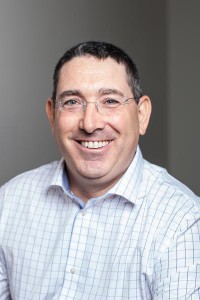
© Stefanie Freynschlag
Dr. Aron Troen
Aron Troen is Senior Lecturer and Director of the Nutrition and Brain Health Laboratory, Institute of Biochemistry, Food Science and Nutrition, The Robert H. Smith Faculty of Agriculture, Food and Environment at the Hebrew University in Rehovot, Israel. Troen also holds appointments as adjunct Assistant Prof. at the Friedman School of Nutrition Science and Policy and as Visiting Scientist at the Nutrition and Neurocognition Laboratory of the United States Dept. of Agriculture Human Nutrition Research Center on Aging at Tufts University, Boston MA, USA. He is a member of several medical and scientific societies and editorial boards including the Iodine Global Network (IGN), the American Society of Nutrition and the Society for Neuroscience. His research focuses on basic and applied aspects of micronutrient nutriture as it pertains to brain function and its implications for public health and nutrition policy. In his capacity as the Israeli representative to the IGN Global Network, Troen leads the Israel Iodine Initiative: a coalition of stakeholder formed from Israel’s leading universities, health and medical organisations (HMOs), public health and ministry of health officials, spearheading the efforts to develop, enact and implement public health policy for the eradication of iodine deficiency in Israel.
Role in EUthyroid
Within EUthyroid, as a Regional Manager, HUJI will play a central role for Israel, in acquiring, and processing national level data from Israeli data sources, including securing ethical approval for human research (i.e. Helsinki and IRB approval) from relevant ethical review boards. The data will be obtained through access to Ministry of Health Surveys and available electronic medical databases of the Israel Center for Disease Control (ICDC), National HMOs (i.e. Maccabi Health Organisation), and Hospitals (i.e. Barzilai Hospital).
Ovadia Y, Turkot S, Aharoni D, Fytlovich S, Gefel D, Troen AM. “Iodine Deficiency Disorders and increasing reliance on sea-water desalination in Israel” – Submitted.
Ovadia Y, Troen AM, Gefel D. Seawater desalination and iodine deficiency: is there a link? IGN Newsletter. 2013;30.8.2013 3/2013.
Troen AM, Fraser, D, Abdeen, Z, Rosenberg, IH. “Child Nutrition Initiative in Israel and Palestine: Status of food security, micronutrient malnutrition, and behavioral change and communication programs” Food and Nutrition Bulletin. 2006;27(2): 180-185.
Nachum-Biala Y, Troen AM. B-vitamins for neuroprotection: Narrowing the evidence gap. Biofactors. 2012.
Troen AM. “Folate and vitamin B12: function and importance in cognitive development”;in Bhutta Z, Hurrell RF, Rosenberg IH, (eds): Meeting Micornutrient Requirements for Health and Development. Nestlé Nutr Inst Workshop Ser, Nestec Ltd., Vevey/S. Karger AG., Basel, 2012;vol 70, pp 161-171.
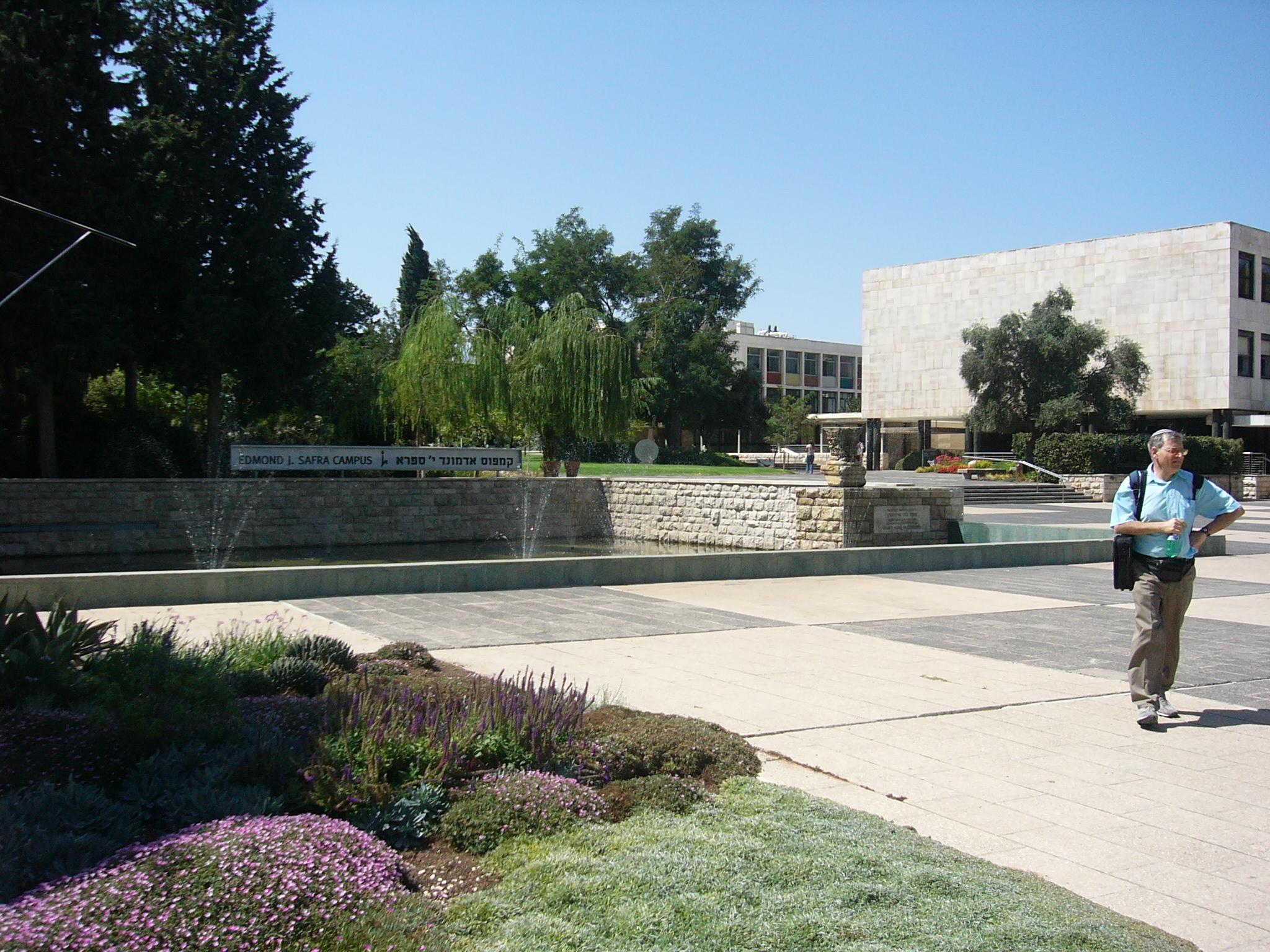
© Wikimedia Commons
CONTACT INFO:
The Hebrew University of Jerusalem
Givat Ram Campus, 91904 Jerusalem, Israel
Dr. Aron Troen
Function: Regional Manager
Email: aron.troen@nullmail.huji.ac.il
Phone: 00 972 894 894 76


Institute of Marine Research
Institute of Marine Research (IMR) is a research institute with administrative duties, affiliated to the Ministry of Trade, Industry and Fisheries in Norway. IMR research focus is in nutrition and seafood safety in relation to human health. IMR gives scientific advice to the government and food authorities concerning health and food safety aspects with special emphasis on seafood consumption. IMR is independent and publishes the results nationally and internationally. In addition, IMR has modern laboratory facilities certified according to the international standards NS-EN ISO/IEC 17025 and has laboratories for nutrient analysis, undesirable substances and molecular biology. IMR performs determination of iodine in food samples and biological samples such as urine by Inductively Coupled Mass-Spectrometry (ICP-MS). Furthermore, IMR has been an active partner in EU-funded projects such as ARRAINA, RAFOA, FORM, and AQUAMAX, including coordinating the last two.
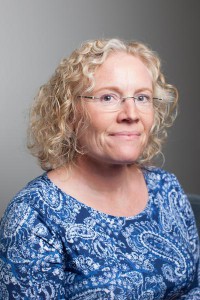
© Stefanie Freynschlag
Dr. Lisbeth Dahl
Lisbeth Dahl is a nutritionist and researcher at the Human Intervention Trials section in Programme for Seafood Safety and Health at IMR. Her main research topic is nutritional epidemiology and her main interest is to study how food intake influences human health and nutrient status. Dahl is the Norwegian National Coordinator of the Iodine Global Network (IGN). In recent years, Dahl has been involved in the longitudinal study Little in Norway (LiN), concerning food intake of iodine during pregnancy and child development. She has extensive experience in project management and has been responsible both as coordinator and as a partner in internal and external projects at IMR (formally NIFES) since 2003. Dahl was a member of the working group for the revision of the 5th Nordic Nutrition Recommendations on iodine (2011-2013). Dahl wrote the systematic literature review on iodine for the revision of the Nordic Nutrition Recommendations together with Prof. Gunnarsdottir.
Role in EUthyroid
Within EUthyroid, as a Regional Manager, IMR has access to national registries; therefore it will provide national registry data to establish a joint European database with information on thyroid disease outcomes (WP1).
Gunnarsdottir I and Dahl L. Iodine intake in human nutrition: a systematic literature review. Food & Nutrition Research 2012, 56: 19731.
I Barikmo, S Henjum, L Dahl, TA Strand, A Oshaug, LE Torheim.Environmental implication of iodine in water, milk and other food used in Saharawi refugees camps in Tindouf, Algeria. The Journal of Food Composition and Analysis, 2011, 24:637-641.
L Dahl, L Johansson, K Julshamn, HM Meltzer. The iodine content of Norwegian foods and diets. Public Health Nutrition, 2004, 7 (4), 569-576.
L Dahl, HM Meltzer, JA Opsahl, K Julshamn. Iodine intake and status in two groups of Norwegians. Scandinavian Journal of Clinical Nutrition, 2003, 47(4):170-178.
L Dahl, JA Opsahl, HM Meltzer, K Julshamn. Iodine concentration in Norwegian milk and dairy products. British Journal of Nutrition, 2003, 90:676-685.

© Nifes
CONTACT INFO:
Institute of Marine Research
Strandgaten 229, 5004 Bergen, Norway
Dr. Lisbeth Dahl
Function: Regional Manager
Email: lisbeth.dahl@nullhi.no
Phone: 00 47 472 916 89


University of Debrecen
The University of Debrecen (UD) was established in 1896; the Faculty of Medicine (Medical School and Medical Center) was opened in 1918. The Department of Medicine, which includes the Division of Endocrinology, is one of the 23 clinical and 20 basic science departments. The 1,800 beds of the Medical Center serve 62,000 inpatients and 670,000 outpatients per year. The research profile of the Division of Endocrinology includes thyroid autoimmunity, iodine deficiency disorders and thyroid cancer. As a result of their work (Mezosi et al., 2000), iodine supplementation became part of the pregnancy care guidelines in Hungary 14 years ago. The Division of Endocrinology participated in several international collaborative studies.
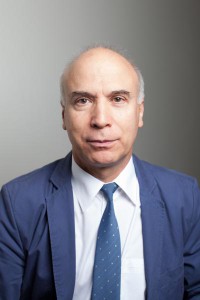
© Stefanie Freynschlag
Prof. Endre V. Nagy, MD
Endre V. Nagy is Chief of the Division of Endocrinology and Deputy Head of the Department of Medicine at the University of Debrecen. He has extensive experience in the field of thyroid research. He has authored or co-authored 125 original scientific articles, book chapters and abstracts in national and international journals. He is the member of several national and international medical and scientific societies, and is the national representative for the IGN. He has been Principal Investigator of numerous research studies.
Role in EUthyroid
Within EUthyroid, as a Regional Manager, UD has access to national registries. Therefore, UD will provide regional data on iodine status and thyroid diseases. In this way, UD will take part in the establishment of a joint European database with information on thyroid disease outcomes (WP1).
Mezosi E, Molnar I, Jakab A, Balogh E, Karanyi Z, Pakozdy Z, Nagy P, Gyory F, Szabo J, Bajnok L, Leovey A, Kakuk G, Nagy EV. Prevalence of iodine deficiency and goitre during pregnancy in east Hungary. Eur J Endocrinol. 2000;143:479-483.
Gyory F, Balazs G, Nagy EV, Juhasz F, Mezosi E, Szakall S, Math J, Lukacs G. Differentiated thyroid cancer and outcome in iodine deficiency. Eur J Surg Oncol. 2004;30:325-331.
Berta E, Samson L, Lenkey A, Erdei A, Cseke B, Jenei K, Major T, Jakab A, Jenei Z, Paragh G, Nagy EV, Bodor M. Evaluation of the thyroid function of healthy pregnant women by five different hormone assays. Pharmazie. 2010;65(6):436-439.
Samson L, Czegeny I, Mezosi E, Erdei A, Bodor M, Cseke B, Burman KD, Nagy EV. Addition of chlorine during water purification reduces iodine content of drinking water and contributes to iodine deficiency. J Endocrinol Invest. 2012;35:21-24.
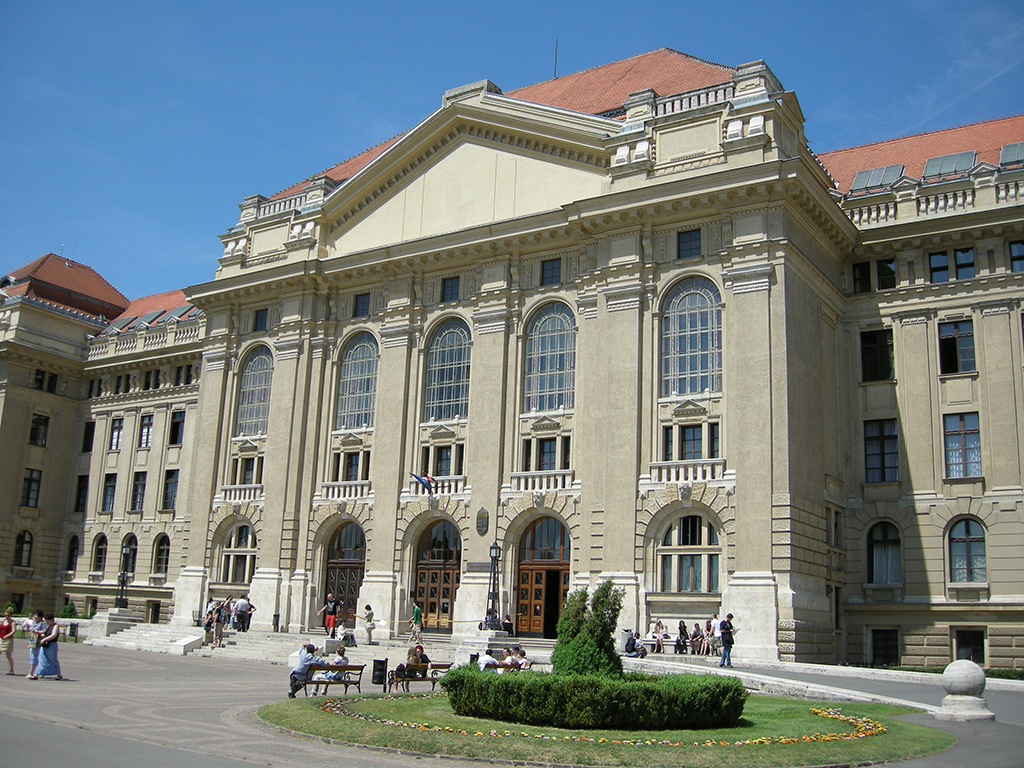
© Wikimedia Commons
CONTACT INFO:
University of Debrecen
Egyetem Ter 1, 4032 Debrecen, Hungary
Prof. Endre V. Nagy, MD
Function: Regional Manager
Email: nagy@nullinternal.med.unideb.hu
Phone: 00 36 30 337 1244, 00 36 30 228 8880


University Medical Centre Ljubljana
The Thyroid Unit at the Department of Nuclear Medicine of the University Medical Centre Ljubljana (UMCL) is a tertiary referral centre for diagnostics and treatment of thyroid diseases serving an area encompassing half of Slovenia. The Department has had a stable catchment area of 1 million inhabitants for more than 20 years and therefore, the number of new cases in each year provides a good estimation of the incidence of a certain disease. Its outpatient department undertakes a complete thyroid diagnostics including: thyroid ultrasound, US-guided fine-needle aspiration biopsy, thyroid scintigraphy, thyroid uptake measurement, and biochemical thyroid diagnostics. Annually, approximately 5,000 new patients are referred to the department, and in total the department manages 14,000 patient visits annually. In addition to outpatient Department, the Department of Nuclear Medicine also has an inpatient Department, predominantly for the treatment of benign thyroid disorders with radioiodine. Clinical research has placed the emphasis on thyroid autoimmunity, usage of colour Doppler ultrasound, thyroid physiology and pathology with respect to previous and current iodine supply. Namely, in 1999, Slovenia increased mandatory iodine supply from previous 10 mg of KI per kg of salt to 25 mg. Several retrospective studies with respect to the incidence of various thyroid disorders and thyroid function before and after the increase in iodine supply have already been performed.
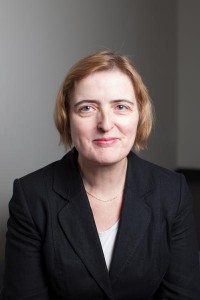
© Stefanie Freynschlag
Prof. Simona Gaberšček, MD
Simona Gaberšček is an internal and nuclear medicine specialist with her main clinical and research interests within thyroid disorders: in vitro studies on FRTL-5 cells, genetic studies, physiology of pregnancy, colour flow Doppler ultrasound studies, radioiodine treatment studies, and iodine supply studies. She has around 20 full publications and many invited lectures. She is a member of medical and scientific societies and an editorial board, is the Secretary of the Slovenian Nuclear Medicine Association, and the Slovenian National Delegate in the IGN.
Role in EUthyroid
Within EUthyroid, as a Regional Manager, UMCL has access to national registries. Therefore, UMCL will participate in providing regional clinical data on iodine and thyroid diseases. Consequently, UMCL will contribute to the establishment of a joint European database with information on thyroid disease outcomes (WP1). As a further task, one survey of iodine status will be carried out in schoolchildren by UMCL (WP2).
Gaberšček S, Bajuk V, Zaletel K, Pirnat E, Hojker S. Beneficial effects of adequate iodine supply on characteristics of thyroid autonomy. Clin Endocrinol (Oxf). 2013;9:867-73.
Zaletel K, Gaberšček S, Pirnat E, Krhin B, Hojker S. Ten-year follow-up of thyroid epidemiology in Slovenia after increase in salt iodization. Croat Med J. 2011;52:615-21.
Fister P, Gaberscek S,Zaletel K, Krhin B, Hojker S, Gersak K. Thyroid function in the third trimester of pregnancy and after delivery in an area of adequate iodine supply. Int J Gynaecol Obstet. 2011;112:52-5.
Zaletel K, Gaberšček S. Hashimoto’s thyroiditis: from genes to the disease. Curr Genomics. 2011;12:576-88.
Fister P, Gaberscek S, Zaletel K, Krhin B, Gersak K, Hojker S. Thyroid volume changes during pregnancy and after delivery in an iodine-sufficient Republic of Slovenia. Eur J Obstet Gynaecol Reprod Biol. 2009;145:45-8.
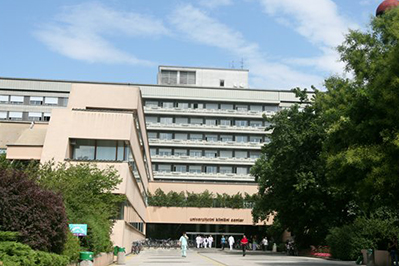
© Jolanda Kofol
CONTACT INFO:
University Medical Centre Ljubljana
Zaloska cesta 2, 1000 Ljubljana, Slovenia
Prof. Simona Gaberšček, MD
Function: Regional Manager
Email: simona.gaberscek@nullkclj.si
Phone: 00 38 615 223 551


Jagiellonian University
The Jagiellonian University (JUMC) is the oldest Polish University and one of the most influential academic institutions in Poland. The Department of Endocrinology of the Jagiellonian University Medical College, founded almost 40 years ago as a part of the Internal Diseases Institute, is one of the oldest endocrinology Departments in Poland. It is involved in teaching, clinical and research activities, being the most important institution of this kind in the South-Eastern Poland. Since its founding, the Department of Endocrinology has been involved in research on the epidemiology of endocrine diseases, and their prevention, with particular interest in iodine deficiency disorders and diabetes mellitus. Its staff have participated in regional, national and European studies on iodine deficiency, including management of the Polish National Programme for Elimination of Iodine Deficiency. The activities of the Department resulted, amongst others, in the introduction of the obligatory model of iodine prophylaxis in Poland in 1997.
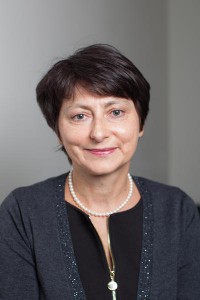
© Stefanie Freynschlag
Prof. Alicja Hubalewska-Dydejczyk, MD
Alicja Hubalewska-Dydejczyk is Professor at the Jagiellonian University, Medical College, and Head of the Department of Endocrinology. She is a specialist in internal medicine, endocrinology, and nuclear medicine, with over 30 years of experience. She has been a leading investigator or participant in a number of research projects funded by the Polish Ministry of Science and EU. As a member of the Polish Council for Control of Iodine Deficiency Disorders she managed the National Programme for Elimination of Iodine Deficiency funded by the Polish Ministry of Health. Since 1999, she has been working on the optimisation of the diagnostic and therapeutic algorithm for GEP-NEN, including radioisotope imaging and peptide receptor radionuclide therapy with labelled somatostatin analogues. Between June 2008 and April 2010, she was President of the International Research Group in Immuno-Scintigraphy and Therapy. Hubalewska-Dydejczyk is a member of several national and international research and scientific boards, as well as numerous scientific journal review boards. She authored more than 160 peer-reviewed publications and 20 chapters in textbooks.
Role in EUthyroid
Within EUthyroid, as a Regional Manager, JUMC has access to national registries. Therefore, JUMC will participate in providing national data on thyroid disorders prevalence, iodine deficiency prevention programme effectiveness and monitoring activities. Consequently, JUMC will contribute to the establishment of a joint European database with information on thyroid disease outcomes (WP1). As a further task, one survey of iodine status will be carried out by JUMC (WP2).
Szybinski Z, Trofimiuk-Müldner M, Buziak-Bereza M, Walczycka L, Hubalewska-Dydejczyk A. Reference values for thyroid volume established by ultrasound in Polish schoolchildren. Endokrynol Pol. 2012;63(2):104-9.
Szybiński Z, Jarosz M, Hubalewska-Dydejczyk A, Stolarz-Skrzypek K, Kawecka-Jaszcz K, Traczyk I, Stoś K. Iodinedeficiency prophylaxis and the restriction of salt consumption – a 21st century challenge. Endokrynol Pol. 2010 Jan-Feb;61(1):135-4.
Hubalewska-Dydejczyk A, Lewiński A, Milewicz A, Radowicki S, Poręba R, Karbownik-Lewińska M, Kostecka-Matyja M, Trofimiuk-Müldner M, Pach D, Zygmunt A.Management of thyroid diseases during pregnancy (Postępowanie w chorobach tarczycy w ciąży). Pol J Endocrinol. 2011;62(4):362-381.
Bijay Vaidya, Alicja Hubalewska-Dydejczyk, Peter Laurberg, Roberto Negro, Francesco Vermiglio, Kris Gustave Poppe: Treatment and Screening of Hypothyroidism in Pregnancy: Results of a European Survey. Eur J Endocrinol. 2012;166:49-54.
John Lazarus, Rosalind S. Brown, Chantal Daumerie, Alicja Hubalewska-Dydejczyk, Roberto Negro, Bijay Vaidya: 2014 European Thyroid Association Guidelines for the Management of Subclinical Hypothyroidism in Pregnancy and in Children. Eur Thyroid J. 2014;3:76–94.

© Wikimedia Commons
CONTACT INFO:
Jagiellonian University
Ul. Golebia 24, 31007 Krakow, Poland
Prof. Alicja Hubalewska-Dydejczyk, MD
Function: Regional Manager
Email: alahub@nullcm-uj.krakow.pl
Phone: 00 48 12 4247520


The Health Sciences Research Institute of the “Germans Trias i Pujol” Foundation
The Health Sciences Research Institute of the “Germans Trias i Pujol” Foundation (IGTP) aims to generate, preserve, disseminate and increase multidisciplinary and translational knowledge in biomedical sciences. At IGTP, several teams are devoted to innovative activity in protocols for clinical management and therapy, as well as to optimise healthcare services. As a translational health research centre, IGTP is associated with a modern tertiary level university teaching hospital the University Hospital “Germans Trias i Pujol” (HUGTP) that provides state-of-the-art health care. The Dept. of Endocrinology and Nutrition of the HUGTP serves a population of more than 400,000. Moreover, it is also the tertiary reference department for 900,000 people. At an administrative level, the centre hosts a technology transfer office as well as a project office with experienced project managers dedicated to the coordination and efficient administration of research projects.
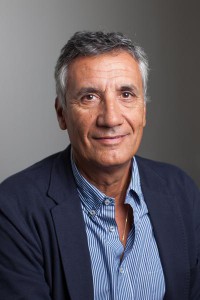
© Stefanie Freynschlag
Prof. Manel Puig Domingo, MD
Manel Puig Domingo is currently the Scientific Director of the IGTP, as well as the Head of the Thyroid Research Group at the HUGTP. He also currently holds the position of Professor of Endocrinology at the Faculty of Medicine at the can Ruti campus of the Universitat Autònoma de Barcelona. Since May 2014, Puig Domingo is the President of the Spanish Society of Endocrinology and Nutrition. He has been a Principal Investigator since 1993, ranging from basic to clinical-epidemiological research in several fields of endocrinology, with a particular focus on thyroid dysfunction and tumours. He has greatly contributed to producing influential scientific works addressing iodine nutritional status and related disorders in several groups of Spanish population.
Role in EUthyroid
IGTP will serve as the main node of the Spanish component of EUthyroid coordinating the contributions of several centres that are conducting research studies in the field of iodine nutrition and thyroid functionality over the national territory. Moreover, as a Regional Manager, it will participate in the gathering of relevant information from national and regional databases (WP1). As a further task, IGTP will be involved in the conduction of one iodine status survey(WP2).
Vila L, Serra-Prat M, Palomera E, de Castro A, Casamitjana R, Puig-Domingo M for the GEDIGC study group. Reference values of Thyroid Hormones in pregnant women living in Catalonia. Thyroid. 2010;20(2):221-5.
Vila L, Serra-Prat M, de Castro A, Palomera E, Casamitjana R, Legaz G, Barrionuevo C, Muñoz JA, García AJ, Lal-Trehan S, García A, Durán J, Puig-Domingo M. Iodine nutritional status in pregnant women of two historically different iodinedeficient areas of Catalonia, Spain. Nutrition. 2011;27(10):1029-33.
Vila L, Velasco I, González S, Morales F, Sánchez E, Lailla JM,Martinez-Astorquiza T, Puig-Domingo M; Grupo de Trabajo de Trastornos por Deficiencia de Yodo y Disfunción Tiroidea de la Sociedad Española de Endocrinología y Nutrición. Detection of thyroid dysfunction in pregnant women: universal screening is justified. Endocrinol Nutr. 2012;59(9):547-60.
Puig-Domingo M, Vila L. The Implications of Iodine and its supplementation during pregnancy in fetal brain development. Curr Clin Pharmacol. 2013;8(2):97-109.
Vila L, Velasco I, González S, Morales F, Sánchez E, Torrejón S, Soldevila B, Stagnaro-Green A, Puig-Domingo M. Controversies in endocrinology: On the need for universal thyroid screening in pregnant women. Eur J Endocrinol. 2013;170(1):R17-30.
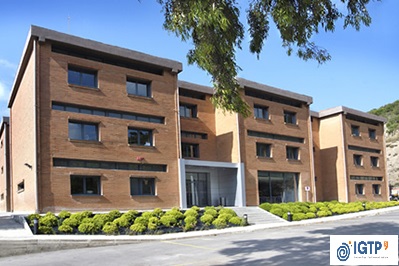
© IGTP
CONTACT INFO:
The Health Sciences Research Institute of the “Germans Trias i Pujol” Foundation
Ctra de canyet s/n, 08916 Badalona Barcelona, Spain
Prof. Manel Puig Domingo, MD
Function: Regional Manager
Email: mpuigd@nulligtp.cat
Phone: 00 34 93 497 86 55


Centre for Regional Policy Research and Cooperation Studiorum Zdruzenje
The Centre for Regional Policy Research and Cooperation Studiorum Zdruzenje (STUDIORUM) specialises in policy research and evidence-informed policy making, at a national and regional level in South Eastern Europe (SEE). It was established in February 2002 as an independent policy-oriented think-tank, working on European and Atlantic integration processes of relevance to the countries of the SEE region. The think-tank’s know-how focuses on the analysis of health and health-related policies within given national contexts. It provides policy advice for improved implementation through evidence-based research, based on the principles of whole-of-government and whole-of-society approaches, in order to introduce the best-buys for preventive services at local and national levels. STUDIORUM has been actively involved in EU projects with different partners from EU and SEE countries. Its expertise and networking stretch beyond the national boundaries, including active participation in the shaping of the policies and research activities of the South-Eastern Europe Health Network (SEEHN) for improving the health and well-being of their citizens through research and policy actions.
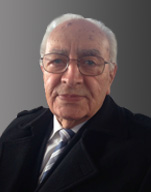
© Studiorum
Prof. Borislav Karanfilski, MD
Borislav Karanfilski is a distinguished expert in the area of thyroid pathology and iodine deficiency. He has been President of the National Iodine Deficiency Committee (NIDC) for the past two decades, and an active member of the IGN. Karanfilski holds a PhD in endocrinology from the University of Skopje, Macedonia, and has upgraded his professional knowledge in world-renowned thyroid centres, including Harvard Medical School. His expertise and experience in health prevention in regards to iodine deficiency and health protection in regards to thyroid health is widely recognised at a national and regional level in SEE. His expertise is indispensable for scientific leadership in SEE on the topic of interest, especially in the EU candidate countries walking the path towards harmonisation of national to regional policies in all areas, including health and well-being.
Role in EUthyroid
Within EUthyroid, as a Regional Manager, STUDIORUM has access to national registries. Therefore, STUDIORUM will participate in providing national data on thyroid disorders. Consequently, STUDIORUM will contribute to the establishment of a joint European database with information on thyroid disease outcomes (WP1). As a further task, one survey in schoolchildren and one in pregnant women will be carried out on iodine supply and thyroid disorders (WP2).
Milevska-Kostova, N. Equity in health in Macedonia: socio-economic and financial aspects and effects of policy changes on the access to prescription medicines in primary healthcare. Interdisciplinary Studies on Central and Eastern Europe. 2014. Peter Lang Publishers.
Milevska-Kostova N, Stikova E, Donev D. Health policy analysis and development, in: Burazeri G and Zaletel-Kragelj (eds) “Health: Systems – Lifestyle – Policies”, 2013;Vol.1 (2nd ed). Jacobs Verlag.
Muller-Nordhorn J, Holmberg C, Dokova KG, Milevska-Kostova N, Chicin G, Ulrichs T, Rechel B, Willich SN, Powles J, Tinnemann P. Perceived challenges to public health in Central and Eastern Europe: a qualitative analysis. BMC Public Health. 2012;12:311.
Karanfilski B, Bogdanova V, Vaskova O, Loparska S, Miceva-Ristevska S, Sestakov G, Kuzmanovska S, Kolevska L. Correction of iodine deficiency in Macedonia. J Pediatr Endocrinol Metab. 2003;16(7):1041-5.
Karanfilski B, Sestakov G, Loparska S, Miceva-Ristevska S, Serafimov N, Tadzer I, Bogdanova V, Georgievska B, Simova N, Vaskova O, et al. Reevaluation of the results of iodine prophylaxis in eradication of endemic goiter in Macedonia. Med Pregl. 1993;46 Suppl 1:77-9.
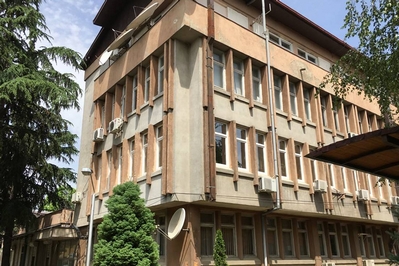
© Studiorum
CONTACT INFO:
Centre for Regional Policy Research and Cooperation Studiorum Zdruzenje
Nikola Parapunov bb, kompleks Makoteks 2 kat, 1000 Skopje, Former Yugoslav Republic of Macedonia
Prof. Borislav Karanfilski, MD
Function: Regional Manager
Email: karanfilski@nullhotmail.com
Phone: 00 389 2 3 136 196


The Queen’s University of Belfast
The Centre for Public Health (CPH) at Queen’s University of Belfast (QUB) brings together scientists and clinicians with backgrounds in nutrition, geriatric medicine, biochemistry, epidemiology, genetics and statistics. The Centre focuses on identifying the epidemiological and genetic risk factors that are important for the health of the individual and of the population, and on developing screening and interventions to reduce the burden of chronic disease in the future. CPH is allied to a broader research network, UK Clinical Research Collaboration Northern Ireland Centre of Excellence for Public Health Research (UKCRC). The Centre, one of only five in the UK, is part of a £20 million investment programme under the umbrella of the UKCRC. In addition, the Centre was awarded £5 million over five years to strengthen research into key public health issues such as obesity, diet and smoking, and has recently been funded for a further five years.
The Wellcome Trust-funded Northern Ireland Clinical Research Facility, based at the Belfast City Hospital, Belfast Health and Social Care Trust, has just opened in 2013. This new centre focuses on nutrition and metabolism research, and allows for research involving healthy volunteers, as well as hospital in- and out-patients and day cases.
All these major recent initiatives, based around nutrition, highlight the expertise and active research environment that currently exists at QUB.
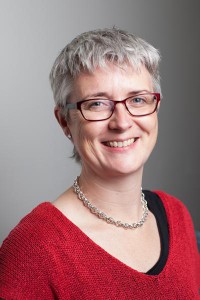
© Stefanie Freynschlag
Prof. Jayne Woodside
Jayne Woodside is Professor for Human Nutrition. Her research is focused on how diet and lifestyle factors may affect chronic disease risk. Her current approaches include nutritional epidemiology, intervention trials using whole food/whole diet approaches, studies examining factors determining diet behaviours, and methods to promote behaviour change. Woodside has contributed to a number of modules on the Human Biology, Biomedical Science and Food Quality, Safety and Nutrition pathways, as well as the Masters in Public Health. Woodside’s group can assess a broad range of biomarkers of disease risk and nutritional status. Current projects are funded by the Food Standards Agency, Medical Research Council, R&D Office Northern Ireland, Northern Ireland Chest Heart and Stroke, and the Centre for Ageing Research and Development in Ireland.
Role in EUthyroid
Within EUthyroid, as a Regional Manager, QUB has access to national registries. Therefore, QUB will participate in providing national data, and will contribute to the establishment of a joint European database with information on thyroid disease outcomes (WP1). In addition, QUB will be the lead centre for the study of iodine nutrition in Ireland – a survey of iodine status in schoolgirls is already underway, funded by Safefood, whilst a study of iodine nutrition during pregnancy has also just been funded by the Public Health Agency in Northern Ireland (WP2).
Burns R, Azizi F, Hedayati M, Mirmiran P, O’Herlihy C, Smyth PP. Is placental iodine content related to dietary iodine intake? Clin Endocrinol (Oxf). 2011;75(2):261-4.
British Thyroid Association UK Iodine Survey Group- Vanderpump MPJ, Lazarus JH, Smyth PP, Laurberg P, Holder RL, Boelaert K, Abraham P, Bannon D, Burns R, Carr H, Combet E, Eggo M, Han TS, Lean M, Mullan K, Leese G, Owen CJ, Pearce S, Razvi S, Torlinska B, Vaidya B, Williams GR, Franklyn JA. Iodine status of UK schoolgirls: a cross-sectional survey. Lancet. 2011;377;9782:2007-2012.

© Wikimedia Commons
CONTACT INFO:
The Queen’s University of Belfast
University Road, BT7 1NN Belfast, United Kingdom
Prof. Jayne Woodside
Function: Regional Manager
Email: j.woodside@nullqub.ac.uk
Phone: 00 44 28 906 32585


Uppsala University
The Department of Women’s and Children’s Health of the Uppsala University (UU), conducts research, postgraduate education and training in gynaecology, obstetrics, perinatal medicine, paediatrics, international health and women’s medicine. The activity is integrated with the Women and Children division at the University Hospital and National Centre for women’s safety. Research is conducted within thirteen research groups and there is a graduate programme in medical science.
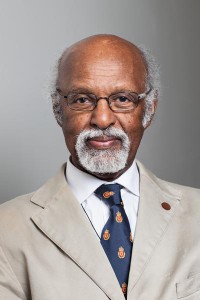
© Stefanie Freynschlag
Prof. Mehari Gebre-Medhin, MD
Mehari Gebre-Medhin is a medical doctor and Professor Emeritus at the Department of Women’s and Children’s Health, Peadiatrics at the Uppsala University. He pursued his MPH on Human Nutrition and Epidemiology at Harvard School of Public Health, USA. Gebre-Medhin is an expert in clinical peadiatrics (gastroenterology and nutrition). In addition, he is a former member of many national and international organisations including: the American Academy of Sciences; National Research Council, Washington; Swedish Foundation for International Cooperation on Research and Higher Education (STINT); Expert Committee on Peadiatric Nutrition of the Swedish Food Board and Swedish Peadiatric Association; Swedish National Commission for UNESCO. Last but not least, Gebre-Medhin is currently a member of the International Council for Control of Iodine Deficiency Disorders and of the Royal Society of Sciences and Research Group on Peadiatric Endocrinology, Uppsala University.
Role in EUthyroid
Within EUthyroid, UU will be involved as a Regional Manager for Sweden. Sweden does not maintain an IDD prevention or monitoring programme. Therefore, UU will act as a control group in the outcome studies and engage relevant decision makers to communicate the EUthyroid outcomes based on the position paper (WP6). Such comparisons are necessary to convince politicians of the advantages of pan-European IDD regulation and iodine monitoring.
Milakovic M, Berg G, Nyström E, Lindstedt G, Gebre-Medhin M, Eggertsen R. Urinary iodine and thyroid volume in a Swedish population. J Intern Med. 2004;255(5):610-4.
Eltom A, Eltom M, Idris M, Gebre-Medhin M. Thyroid function in the newborn in relation to maternal thyroid status during labour in a mild iodine deficiency endemic area in Sudan. Clin Endocrinol (Oxf). 2001;55(4):485-90.
Eltom A, Eltom M, Elnagar B, Elbagir M, Gebre-Medhin M. Changes in iodine metabolism during late pregnancy and lactation: a longitudinal study among Sudanese women. Eur J Clin Nutr. 2000;54(5):429-33.
Eltom A, Elnagar B, Elbagir M, Gebre-Medhin M. Thyroglobulin in serum as an indicator of iodine status during pregnancy. Scand J Clin Lab Invest. 2000;60(1):1-7.
Peterson S, Sanga A, Eklöf H, Bunga B, Taube A, Gebre-Medhin M, Rosling H. Classification of thyroid size by palpation and ultrasonography in field surveys. Lancet. 2000;355(9198):106-10.

© Wikimedia Commons
CONTACT INFO:
Uppsala University
Sankt Olofsgatan 10 B, 75105 Uppsala, Sweden
Prof. Mehari Gebre-Medhin, MD
Function: Regional Manager
Email: Mehari.Gebre-Medhin@nullkbh.uu.se
Phone: 00 46 186 115 990


Landspitali University Hospital
The Unit for Nutrition Research (UNR) was established in September 1997 as a research institute within Landspitali University Hospital (LANDSPITALI) and the University of Iceland. UNR is a leading research unit in the field of human nutrition in Iceland, closely collaborating both with government organisations as well as non-profit research organisations. Studies include cross sectional national studies, prospective large studies on infant and child nutrition in Iceland, nutrition in pregnancy, nutrition and prevention of disease and nutrition in hospitalised patients and the elderly. UNR also has extensive experience in conducting human intervention trials throughout European as well as in Nordic collaborations.
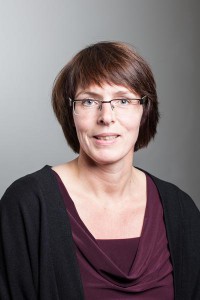
© Stefanie Freynschlag
Prof. Ingibjorg Gunnarsdottir
Ingibjorg Gunnarsdottir is the Head of the Department of Clinical Nutrition at Landspitali University Hospital and the Unit for Nutrition Research at the University of Iceland and Landspitali University Hospital. As a Regional Manager, she will contribute with her expertise on dietary sources of iodine and the assessment of iodine status.
Role in EUthyroid
Within EUthyroid, as a Regional Manager, LANDSPITALI has access to national registries. Therefore, LANDSPITALI will participate in providing national data, and will contribute to the establishment of a joint European database with information on thyroid disease outcomes (WP1).
Gunnarsdottir I, Gustavsdottir AG, Steingrimsdottir L, Maage A, Johannesson AJ, Thorsdottir I. Iodine status of pregnant women in a population changing from high to lower fish and milk consumption. Public Health Nutr. 2013;16(2):325-9.
Gunnarsdottir I, Dahl L. Iodine intake in human nutrition: a systematic literature review. Food Nutr Res. 2012;56.
Gunnarsdottir I, Gunnarsdottir BE, Steingrimsdottir L, Maage A, Johannesson AJ, Thorsdottir I. Iodine status of adolescent girls in a population changing from high to lower fish consumption. Eur J Clin Nutr. 2010;64(9):958-64.
Gunnarsdottir I, Gustavsdottir AG, Thorsdottir I. Iodine intake and status in Iceland through a period of 60 years. Food Nutr Res. 2009;27;53.

© Jón Baldvin Halldórsson
CONTACT INFO:
Landspitali University Hospital
Eiriksgata 5, 101 Reykjavik, Iceland
Prof. Ingibjorg Gunnarsdottir
Function: Regional Manager
Email: ingigun@nulllandspitali.is
Phone: 00 354 543 8416


Toulouse University Hospital
Toulouse University Hospital (CHUT) represents the reference in the health sector in the south of France. With 2,791 beds, it serves the Midi-Pyrenees Area. CHUT is the fourth largest French hospital in terms of activity with 614,800 outpatients and 179,900 inpatients recorded in 2006. CHUT has been organised into medical activity centres since 2004. These include clinical centres and medico-technical centres. CHUT combines various hospitals that are situated in Toulouse: Purpan hospital, Rangueil-Larrey hospital, Hôpital des Enfants, l’Hôpital Paule de Viguier, Grave-Casselardit hospital, and one hospital outside of Toulouse, namely La Fontaine Salée, situated in Salies du Salat.
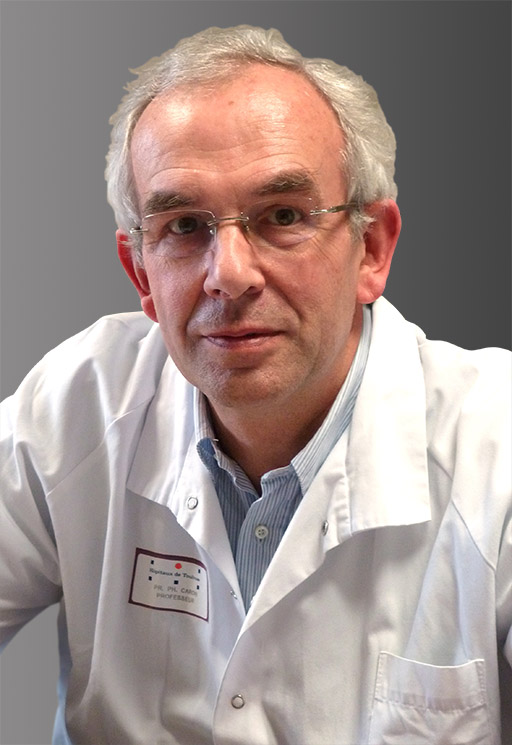
© Toulouse University Hospital
Prof. Philippe Caron, MD
Philippe Caron is Chief of the Department of Endocrinology and Metabolic Diseases, CHU Toulouse. Being the French representative for IGN and the President of the Groupe de Recherche sur la Thyroïde (GRT) in France, he will be a Regional Manager for France in EUthyroid.
Role in EUthyroid
Within EUthyroid, CHUT will be involved as a Regional Manager for France. France does not maintain an IDD prevention or monitoring programme. Therefore, CHUT will act as a control group in the outcome studies and engage relevant decision makers to communicate the EUthyroid outcomes based on the position paper (WP6). Such comparisons are necessary to convince politicians of the advantages of pan-European IDD regulation and iodine monitoring.
Ph Caron, Cl Jaffiol, J Leclère, J Orgiazzi, F Delange. Apport iodé en France. Résultats nationaux du projet Thyromobile dans une population d’enfants scolarisés de 6 à 14 ans. Ann Endocrinol (Paris). 1996, 57, 228-233.
F Delange, G Benker, Ph Caron, O Eber, W Ott, F Peter, J Podoba, M Simescu, Z Szybinski, F Vertongen, P Vitti, W Wiersinga, V Zamrazil. Thyroid volume and urinary iodine in European schoolchildren. Standardization of values for assessment of iodine deficiency. Eur J Endocrinol. 1997, 136, 180-187.
Ph Caron, M Hoff, S Bazzi, A Dufor, G Faure, I Ghandour, P Lauzu, Y Lucas, D Maraval, F Mignot, P Réssigeac, F Vertongen, V Grangé. Urinary iodine excretion during normal pregnancy in healthy women living in the southwest of France : correlation with maternal thyroid parameters. Thyroid. 1997, 7, 749-754.
Ph Caron, D Glinoer, P Lecomte, J Orgiazzi, JL Wémeau. Apport iodé en France. Prévention de la carence iodée au cours de la grossesse et l’allaitement. Ann Endocrinol. 2006, 67, 281-286.
Ph Caron. Prévention des désordres thyroïdiens au cours de la grossesse. Journal de Gynécologie, Obstétrique et Biologie de la Reproduction. 2009, 38, 574-579.
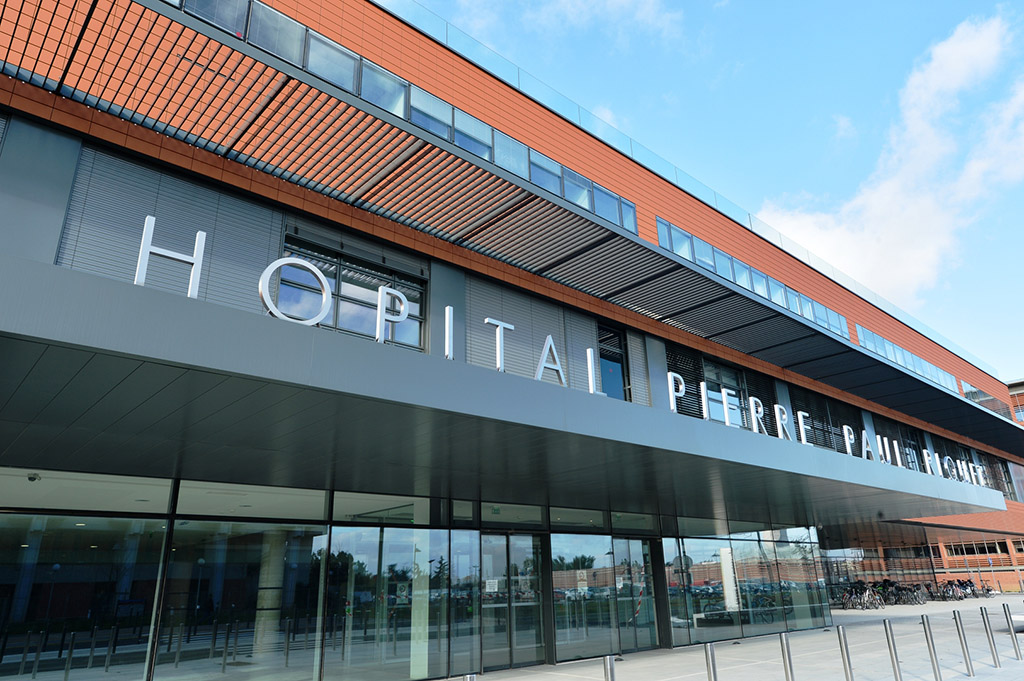
© Toulouse University Hospital
CONTACT INFO:
Toulouse University Hospital
170 avenue de Casselardit, 31059 Toulouse, France
Prof. Philippe Caron, MD
Function: Regional Manager
Email: caron.p@nullchu-toulouse.fr
Phone: 00 33 567 771 701


Endocrinology Centre
The Endocrinology Centre (EC) was established in 2002. The Centre’s aim is to offer high quality endocrine care to outpatients, and to engage in professional scientific activities. EC is specialised in diagnosing and treating diabetes and obesity, diseases of the thyroid gland, parathyroid glands, suprarenal glands, pituitary and sexual glands, growth disorders, and also disturbances of water, mineral and fat metabolism. Since 2004, EC has a contract with the Estonian Sick Fund and in 2006 it was included into the registry of R&D institutions kept at the Estonian Ministry of Culture and Education. The Centre sees about 4,000 patients (the majority of them with thyroid disorders) annually. EC employs 6 professionals from an endocrine and nursing background.
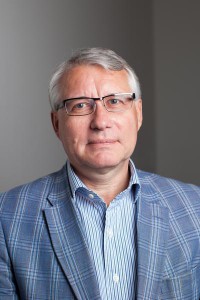
© Stefanie Freynschlag
Toomas Podar, MD
Toomas Podar co-founded the Endocrinology Centre in 2002 and successfully developed it into a successful private practice and a site for scientific studies and clinical trials. He holds a PhD in endocrinology from the Moscow Institute of Medicine (thesis on thyroid autoimmunity in Graves’ disease, 1988), a Master of Public Health in Epidemiology (University of Pittsburgh, PA, USA, 1991) and a Doctor of Medical sciences (internal medicine, University of Tartu, Estonia, 1994).
Role in EUthyroid
Within EUthyroid, EC will be involved as a Regional Manager for Estonia. Estonia does not maintain an IDD prevention or monitoring programme. Therefore, EC will act as a control group in the outcome studies and engage relevant decision makers to communicate the EUthyroid outcomes based on the position paper (WP6). Such comparisons are necessary to convince politicians of the advantages of pan-European IDD regulation and iodine monitoring.
Harjutsalo V, Podar T, Tuomilehto J. Cumulative incidence of type 1 diabetes in 10,168 siblings of Finnish young-onset type 1 diabetic patients. Diabetes. 2005;54(2):563-9.
Pozzilli P, Manfrini S, Buzzetti R, Lampeter E, Leeuw ID, Iafusco D, Prisco M, Ionescu-Tirgoviste C, Kolouskova S, Linn T, Ludvigsson J, Madacsy L, Mrozikiewicz AS, Mrozikiewicz PM, Podar T, Vavrinec J, Vialettes B, Visalli N, Yilmaz T, Browne PD; IMDIAB group. Glucose evaluation trial for remission (GETREM) in type 1 diabetes: a European multicentre study. Diabetes Res Clin Pract. 2005;68(3):258-64.
Karvonen M, Tuomilehto J, Podar T. Epidemiology of Type I diabetes. In: Textbook of diabetes. 3rd edition. Eds. Pickup J, Williams G. Blackwell Science, Oxford, Boston, Melbourne, Berlin, Paris, Tokyo, 2003,5.1—5.14.
Veinpalu M, Ambos A, Velbri S, Vaher Y, Podar T. Urinary iodine excretion in Estonian children. Eur J Endocrinol. 1996;135(2):248.
Saarma VA, Podar T. Antibodies to the plasma membranes of thyrocytes in patients with diffuse toxic goiter during treatment with mercazole. Probl Endokrinol. 1988;34(5):17-9.
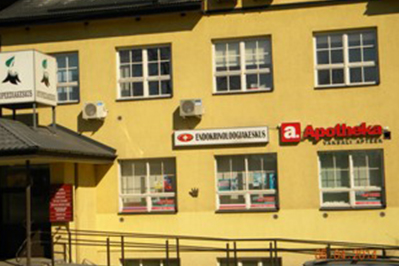
© Toomas Podar
CONTACT INFO:
Endocrinology Centre
Vaksali Street 17, 50410 Tartu, Estonia
Toomas Podar, MD
Function: Regional Manager
Email: toomaspodar@nullhotmail.com
Phone: 00 37 27 301 909


Institute of Endocrinology
The Institute of Endocrinology (ENDO), established in 1957, is an independent allowance organisation in the framework of the Czech health system, directly managed by the Czech Ministry of Health. It is a research organisation into the diagnosis, prevention and treatment of thyroid disorders. The main tasks of ENDO are highly specialised in the prevention, diagnostic, treatment, research and pre- and post-gradual education activities in the field of endocrinology and related fields of medicine. The latter includes significantly, clinical biochemistry focused on endocrinology and metabolism including: molecular endocrinology, diabetology, obesitology, and clinical immunology. At the moment the staff exceeds 150 people. ENDO’s activities have reflected the rapid development of endocrinology and related fields of medicine in the last 50 years. Among the pioneering work organised and performed by ENDO is the screening of iodine deficiency in the country in late 50’s, at that time among the first and most extensive in Europe.. In addition, ENDO was the first to introduce radioiodine therapy of thyroid disorders, including thyroid cancer, and demonstrated new methods of treatment in nuclear medicine.
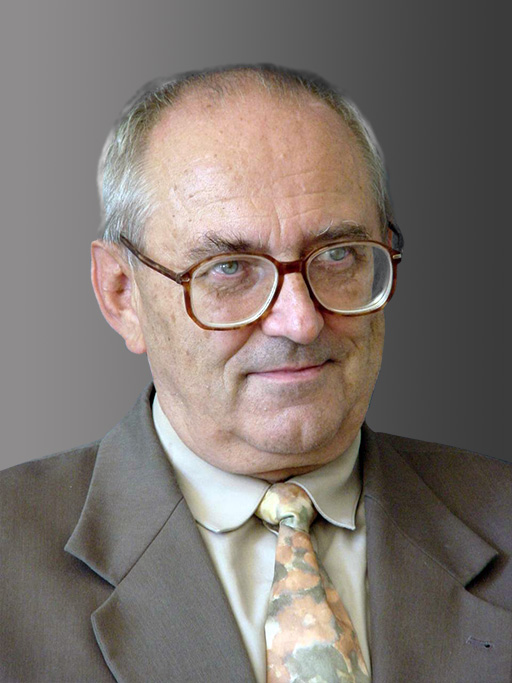
© Institute of Endocrinology, Prague
Prof. Vaclav Zamrazil, MD
Vaclav Zamrazil is a professor of internal medicine and doctor of medical sciences. He is the representative of the Czech Republic in the IGN (Iodine Global Network) and will be involved as a regional manager in the EUthyroid project. Since 1999 he has been head of the Department of Endocrinology at the Institute for Postgraduate Medical Education in Prague. He is a member of many national and international organisations including: Czech Endocrinological Society; Czech Diabetes Society; European Thyroid Association; Czech Society of Internal Medicine; Czech Society of Gerontology and Geriatrics; Association of Physicians in Prague and Slovak medical society. He is also a member of the Interdisciplinary Committee for Treatment of Iodine Deficiency in Czech Republic at the State Heath Institute in Prague. He has authored or co-authored more than 450 publications, of which around two hundred are peer-reviewed scientific papers, and been awarded various prizes.
Role in EUthyroid
Within EUthyroid, as a Regional Manager, ENDO will participate in the gathering of relevant information from national and regional databases on iodine supply and thyroid disorders. Consequently, ENDO will contribute to the establishment of a joint European database with information on thyroid disease outcomes (WP1). One survey in schoolchildren, one in pregnant women and one in adults will be carried out on iodine supply and thyroid disorders by ENDO (WP2).
Charvat J, Svab P, Havlin J, Bilek R, Zamrazil V. The significance of plasma adrenomedullin and calcitonin gene-related peptide concentration in patients with Type 2 diabetes mellitus who are treated for cardiovascular risk factors. Neuro Endocrinol Lett. 2014;35(2):154-8.
Jiskra J, Fait T, Bílek R, Krátký J, Bartáková J, Lukáš J, Límanová Z, Telička Z, Zamrazil V, Potluková E. Mild iodine deficiency in women after spontaneous abortions living in a iodine-sufficient area of Czech Republic: prevalence and impact on reproductive health. Clin Endocrinol (Oxf) 2014;80(3):452-8.
Bílek R, Stárka L, Zamrazil V. Dysthyronemia in normal concentrations of thyrotropin – analytical and clinical consequences. Horm Mol Biol Clin Invest 2013;13(2):13-17.
Bílek R, Stárka L, Zamrazil V. Evaluation of dysthyronemia in endocrinological patients. Horm Mol Biol Clin Invest 2011,8(3):499-504.
Simunkova K, Hampl R, Hill M, Kriz L, Hrda P, Janickova-Zdarska D, Zamrazil V, Vrbikova J, Vondra K. Adrenocortical function in young adults with diabetes mellitus type 1. J Steroid Biochem Mol Biol. 2010;122(1-3):35-41.
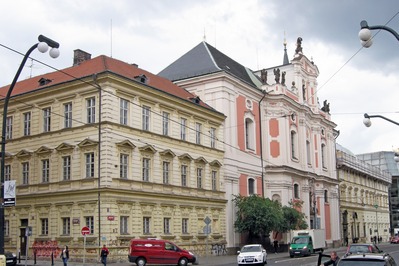
© Radovan Bílek
CONTACT INFO:
Institute of Endocrinology
Narodni 8, 11694 Prague, Czech Republic
Prof. Vaclav Zamrazil, MD
Function: Regional Manager
Email: vzamrazil@nullendo.cz
Phone: 00 420 224 905 302


Ministry of National Defense, Armed Forces University Hospital
The Armed Forces University Hospital (HFAR) is under the jurisdiction of the Portuguese Ministry of National Defence (DEFESA). The Department of Endocrinology (DE) was founded at the HFAR in 1982 and restructured in 1997. The HFAR is a University Affiliated Hospital involved in clinical care, education (pre- and post-graduate) and clinical research activities. It provides first-class comprehensive clinical care to Armed and Security Forces personnel and their families, and also civil servants. The DE has 5 consultants and 2 registrars of Endocrinology, 3 dieticians and 3 research nurses. The Department receives medical students and doctors training in endocrinology and is regularly involved in cooperative projects with hospitals, universities, scientific societies and health authorities. The main areas of interest at the Department are thyroid diseases and Type 2 diabetes.

© Maria João Gomes
João J de Castro, MD
João J de Castro is a Consultant Endocrinologist with interest in clinical research in the field of iodine and thyroid disorders. De Castro is Director of the Department of Endocrinology at the Armed Forces University Hospital and the Secretary-General of the Portuguese Society of Endocrinology. Furthermore, he is a founding member and past President of the thyroid section of the Portuguese Society of Endocrinology. De Castro has participated in more than 300 conferences and has given presentations at national and international congresses and courses. He has also authored more than 80 papers published in peer reviewed journals. He has been awarded 11 national prizes in endocrinology and is the Portuguese representative of IGN.
Role in EUthyroid
Within EUthyroid, as a Regional Manager, DEFESA will participate in the gathering of relevant information from national and regional databases on iodine supply and thyroid disorders. Consequently, DEFESA will contribute to the establishment of a joint European database with information on thyroid disease outcomes (WP1). As a further task, one survey in schoolchildren will be carried out on iodine supply and thyroid disorders by DEFESA (WP2).
Department of Health. Guidelines: Iodine in women during preconception, pregnancy and breastfeeding 2013.
Lopes MS, de Castro JJ, Marcelino M, Oliveira MJ, Carrilho F, Limbert E. Iodine and Thyroid: What a Clinician Should Know. Acta Médica Portuguesa. 2012;25(3): 174-178.
Limbert E, Prazeres S, Sao Pedro M, Madureira D, Miranda A, Ribeiro M, Carrilho F, de Castro JJ, Lopes MS, Cardoso J, Carvalho A, Oliveira MJ, Reguengo H, Borges F. Iodine intake in Portuguese school children. Acta Med Port. 2012;25(1): 29-36.
Limbert E, Prazeres S, Madureira D, Miranda A, Ribeiro M, Abreu FS, Cesar R, Ferreira AM, Ferreira M, Maritza S, Lemos L, Carvalho R, ponte C, Mota L, Carrilho F, de Castro JJ, Oliveira MJ. Aporte do iodo nas Regiões Autónomas da Madeira e dos Açores. Revista Portuguesa de Endocrinologia, Diabetes e Metabolismo 2012;7(2): 2-7.
Limbert E, Prazeres S, Sao PM, Madureira D, Miranda A, Ribeiro M, de Castro JJ, Carrilho F, Oliveira MJ, Reguengo H, Borges F. Iodine intake in Portuguese pregnant women: results of a countrywide study. Eur J Endocrinol 2010;163(4): 631-635.
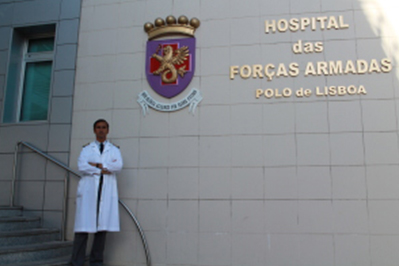
© Maria João Gomes
CONTACT INFO:
Ministry of National Defense, Armed Forces University Hospital
Azinhaga dos Ulmeiros – 1649-020, Lisboa, Portugal
João J de Castro, MD
Function: Regional Manager
Email: joao.castro@nulldefesa.pt, jcastro.endoc.hmp@nullsapo.pt
Phone: 00 35 121 751 9550


Sahlgrenska University Hospital
Sahlgrenska University Hospital (VGR-SUH) provides basic and emergency care for the Göteborg region, and its 700,000 inhabitants, and highly specialised care for West Sweden, with 1.7 million inhabitants. It is one of six teaching hospitals for medical education in Sweden. The hospital provides the infrastructure necessary for teaching and research in cooperation with the Sahlgrenska Academy at the University of Gothenburg.
The Department of Medicine serves the inhabitants of Gothenburg, the second largest city in Sweden, with emergency care, and harbours specialised care in all subspecialties of internal medicine. The Section of Endocrinology, Diabetes and Metabolism combines advanced health care and highly renowned research.
Endocrinological research is an important area of focus within the Department of Medicine. This research involves both basic and clinical research into growth hormone, cortisone, sex hormones and thyroid hormone. The Thyroid Department has ongoing research activities in Graves’ Disease and in risk groups of iodine deficiency.
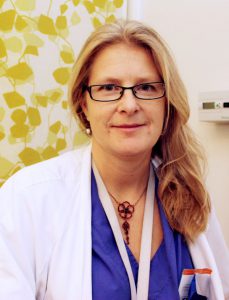
© Sahlgrenska Universitetssjukhuset
Ass Prof Helena Filipsson Nyström, MD
Helena Filipsson Nyström is the medical leader of the Thyroid Department at Sahlgrenska University Hospital. Her current scientific work covers three areas: Graves’ disease and mental outcome, iodine metabolism and pituitary diseases. In 2013, Filipsson Nyström became Associate Professor in endocrinology and since 2014 she is an adjunct lecturer.
Filipsson Nyström is interested in thyroid diseases and the effects of thyroid hormones on the brain and cognitive function. This includes magnetic resonance imaging (MRI) of hippocampus volume, functional near infrared spectroscopy (fNIRS), neuropsychology, and neuropsychiatry in Graves’ patients in order to predict long-standing mental dysfunction.
Another area of focus is risk groups for iodine deficiency. The ‘Swedish IoDine in Pregnancy and Development In Children’ (SWIDDICH) study is an on-going placebo-controlled longitudinal study with 150 µg iodine supplement during pregnancy combined with follow-up of the children to assess the importance of thyroid hormones for the brain development of the child. The assessment of risk groups also includes lactating women and evaluation after gastrointestinal surgery.
In addition, Filipsson Nyström is responsible for a pilot study on the role of GA-DOTATOC PET in the management of patients with pituitary tumours.
Role in EUthyroid
Within EUthyroid, as a Regional Manager, VGR-SUH has access to national registries, therefore it will contribute to the collection of data from national registries and the establishment of a joint database (WP1). In addition, VGR-SUH will contribute IDD outcome research (WP2) and samples for studies assessing thyroglobulin (Tg) as a novel functional biomarker (WP3).
Thyroid volume in Swedish school children: a national, stratified, population-based survey. Filipsson Nyström H, Andersson M, Berg G, Eggertsen R, Gramatkowski E, Hansson M, Hulthén L, Milakovic M, Nyström E. Eur J Clin Nutr. 2010 Nov;64(11):1289-95. doi: 10.1038/ejcn.2010.162. Epub 2010 Aug 25.
Iodine status in the Nordic countries – past and present. Nyström HF, Brantsæter AL, Erlund I, Gunnarsdottir I, Hulthén L, Laurberg P, Mattisson I, Rasmussen LB, Virtanen S, Meltzer HM. Food Nutr Res. 2016 Jun 8;60:31969. doi: 10.3402/fnr.v60.31969. eCollection 2016. Review
Iodine deficiency in a study population of pregnant women in Sweden. Granfors M, Andersson M, Stinca S, Åkerud H, Skalkidou A, Poromaa IS, Wikström AK, Nyström HF. Acta Obstet Gynecol Scand. 2015 Nov;94(11):1168-74. doi: 10.1111/aogs.12713. Epub 2015 Aug 20.
Incidence of hyperthyroidism in Sweden. Abraham-Nordling M, Byström K, Törring O, Lantz M, Berg G, Calissendorff J, Nyström HF, Jansson S, Jörneskog G, Karlsson FA, Nyström E, Ohrling H, Orn T, Hallengren B, Wallin G. Eur J Endocrinol. 2011 Dec;165(6):899-905. doi: 10.1530/EJE-11-0548. Epub 2011 Sep 9.
Adequate iodine nutrition in Sweden: a cross-sectional national study of urinary iodine concentration in school-age children. Andersson M, Berg G, Eggertsen R, Filipsson H, Gramatkovski E, Hansson M, Hulthén L, Milakovic M, Nyström E. Eur J Clin Nutr. 2009 Jul;63(7):828-34. doi: 10.1038/ejcn.2008.46. Epub 2008 Sep 10.

© Jan Ainali (Own work) [CC BY-SA 3.0], via Wikimedia Commons
Sahlgrenska University Hospital
SE-413 45, Gothenburg, Sweden
Ass Prof Helena Filipsson Nyström
Function: Regional Manager
Email: helena.filipsson@nullmedic.gu.se
Phone: 00 46 (0) 31 342 70 60
